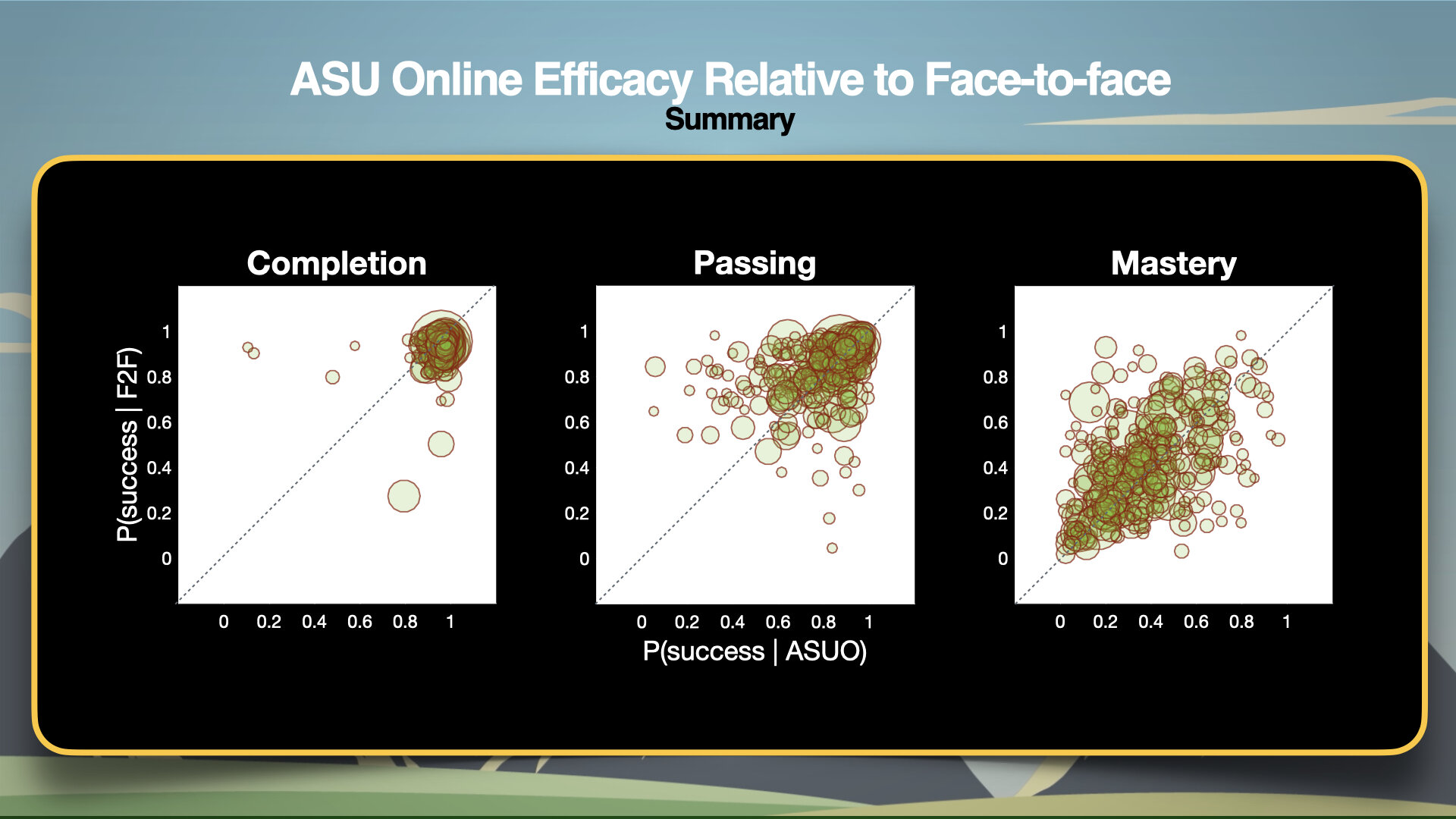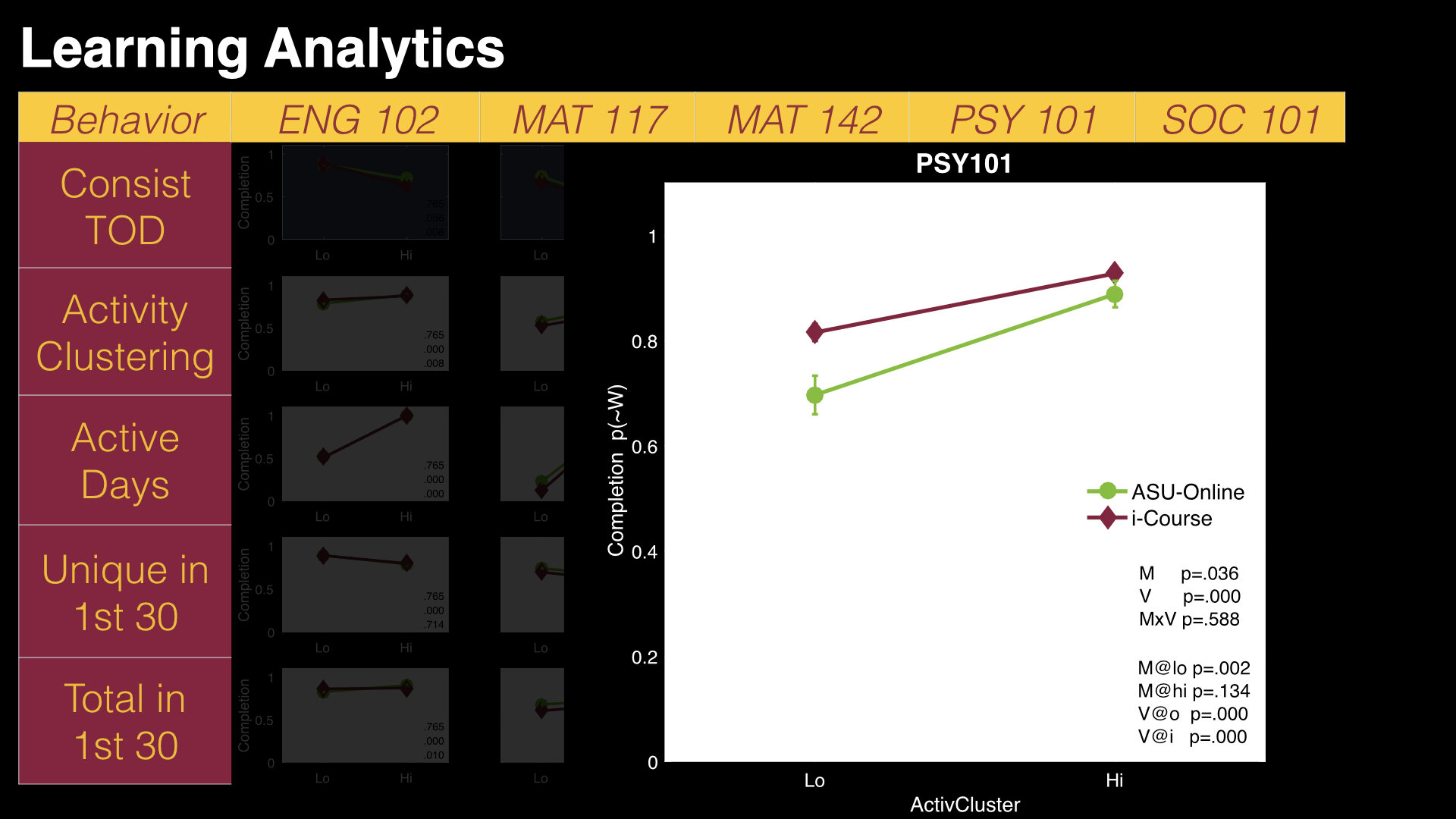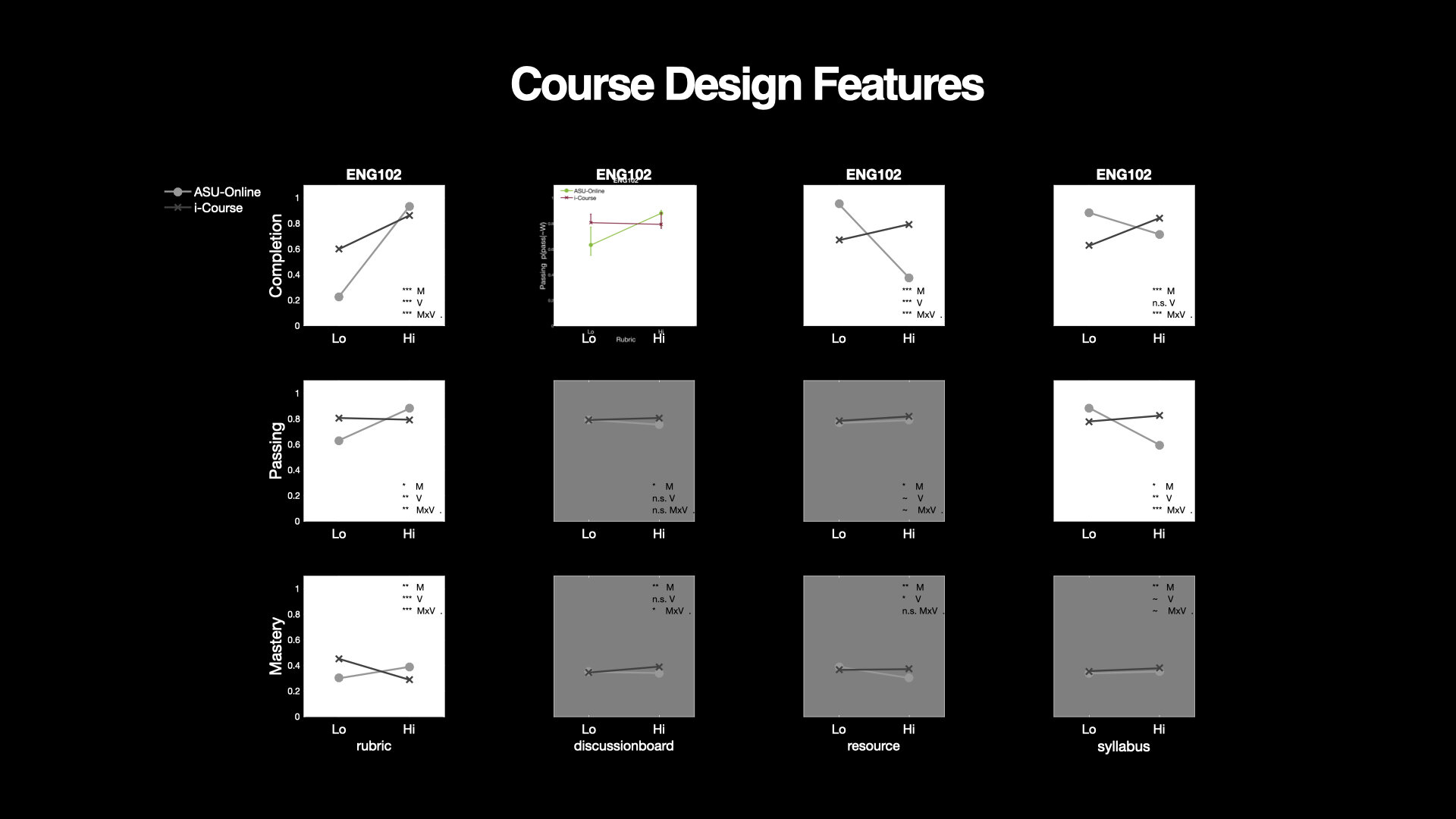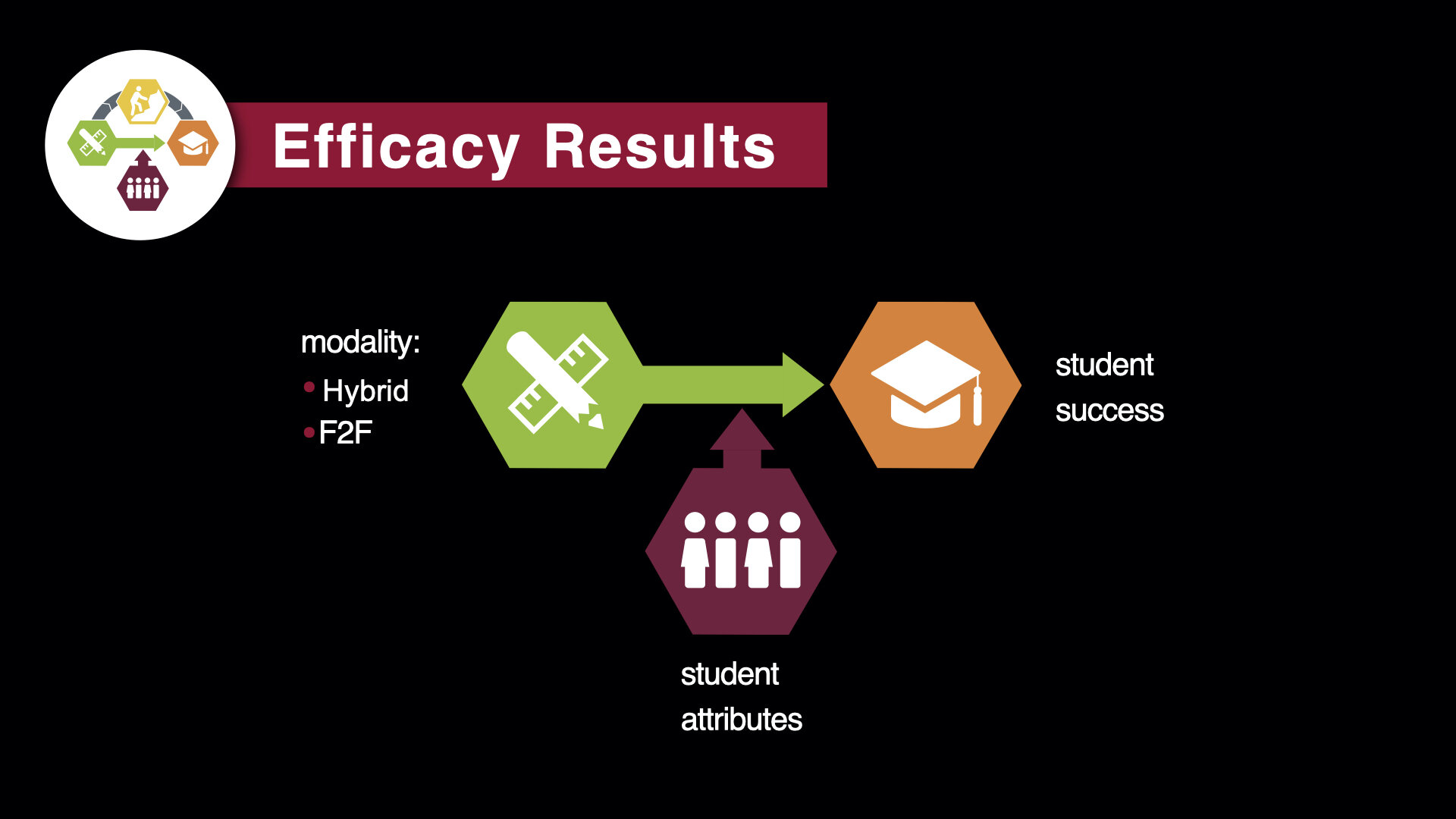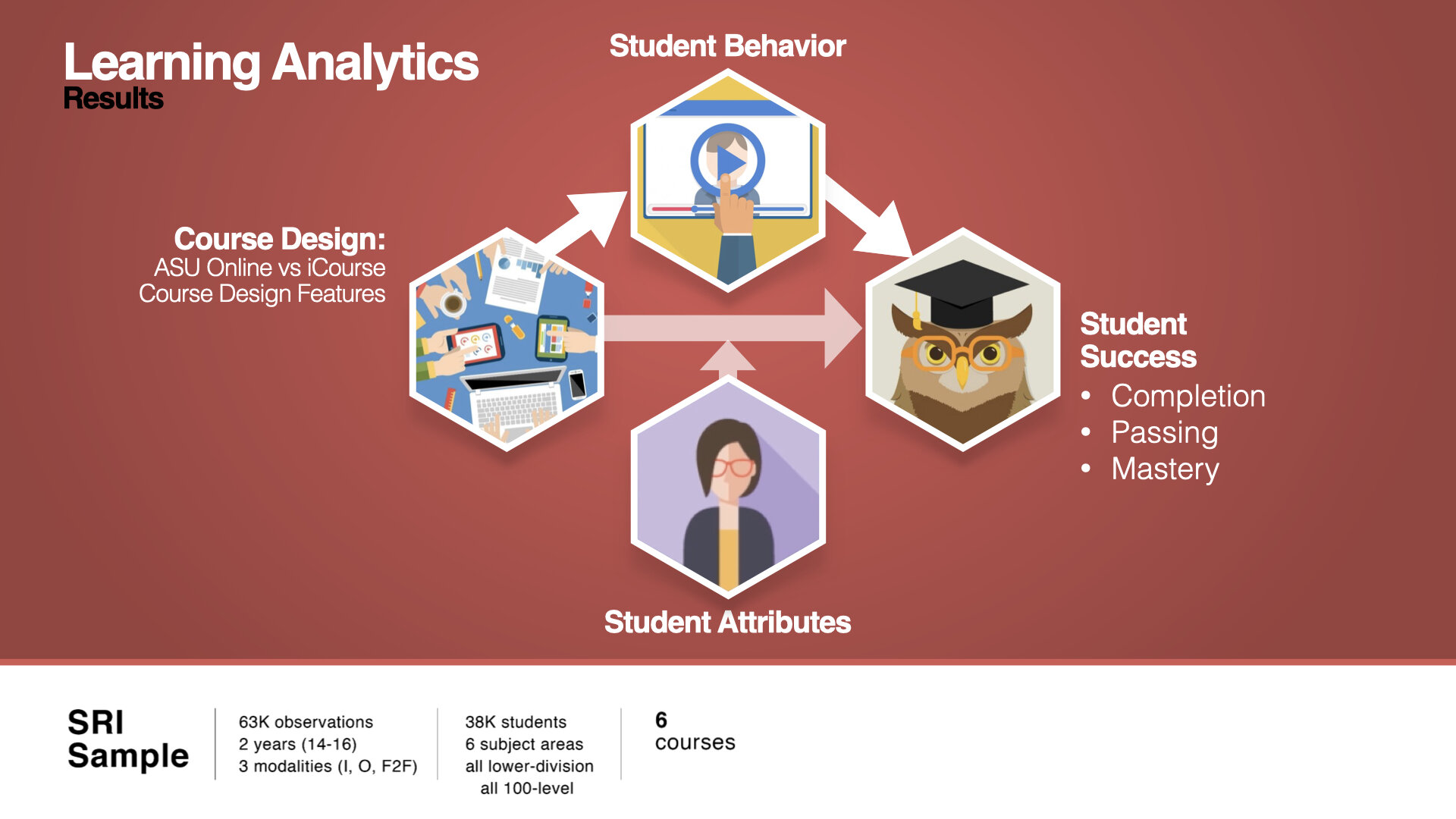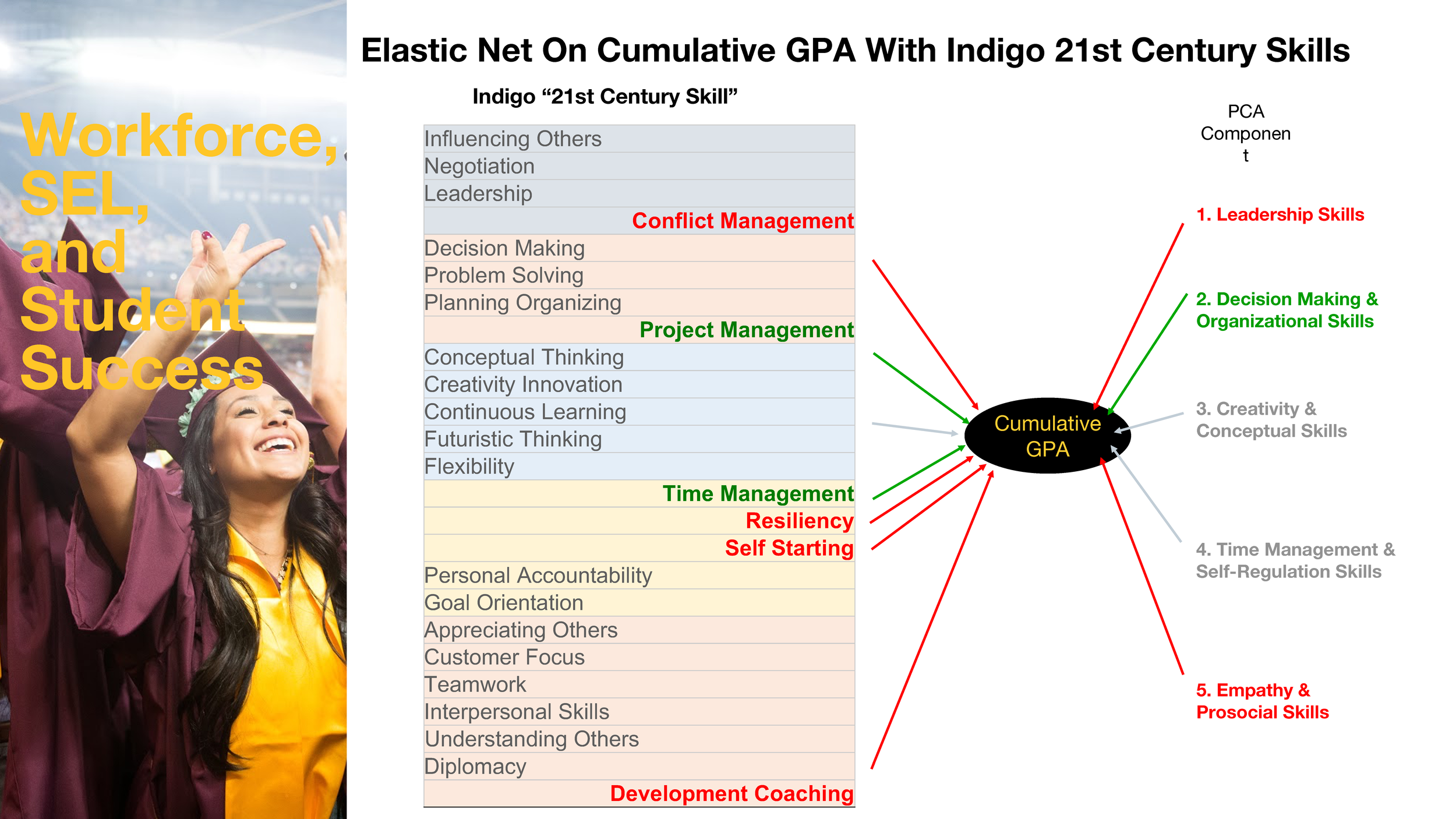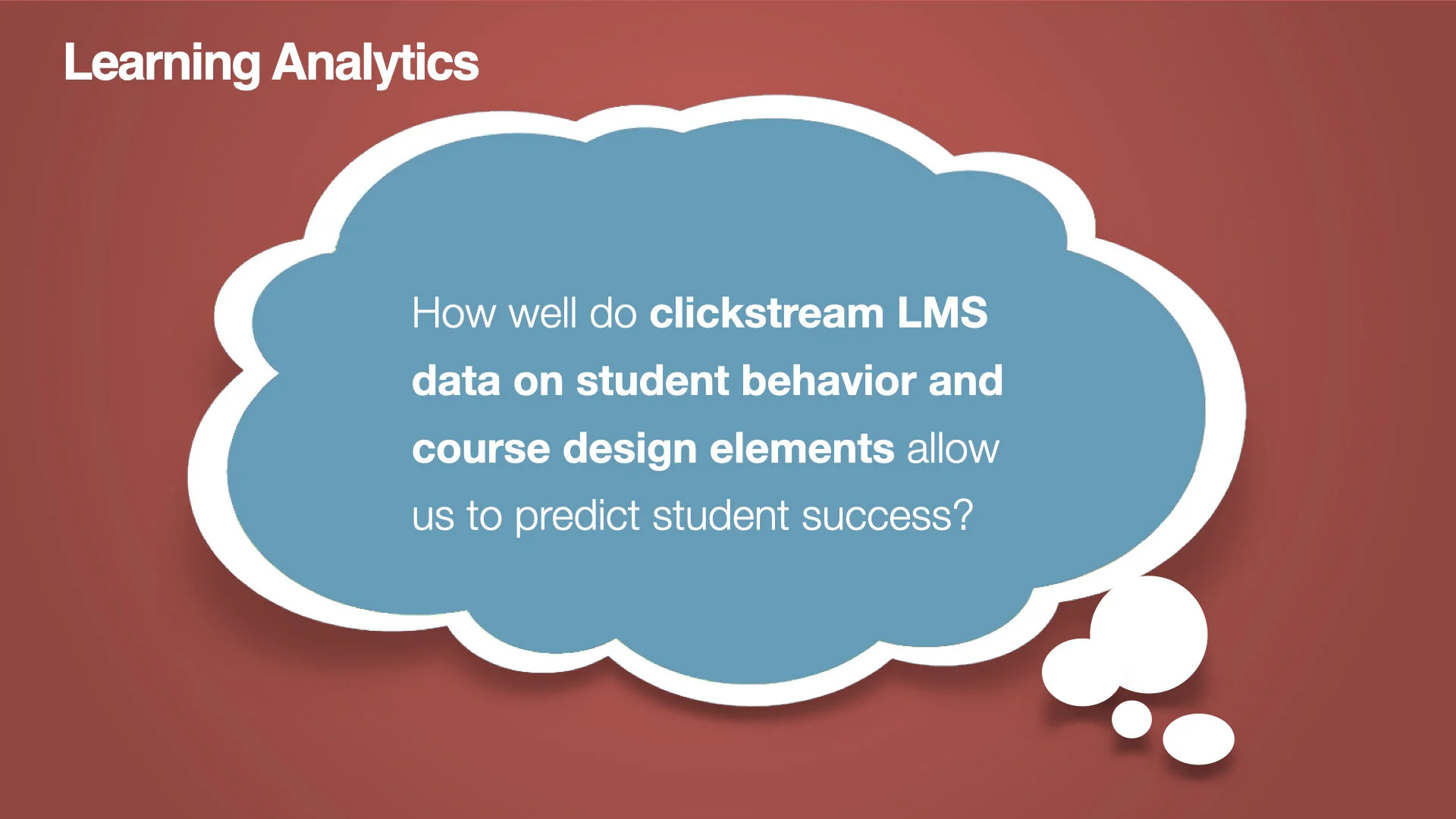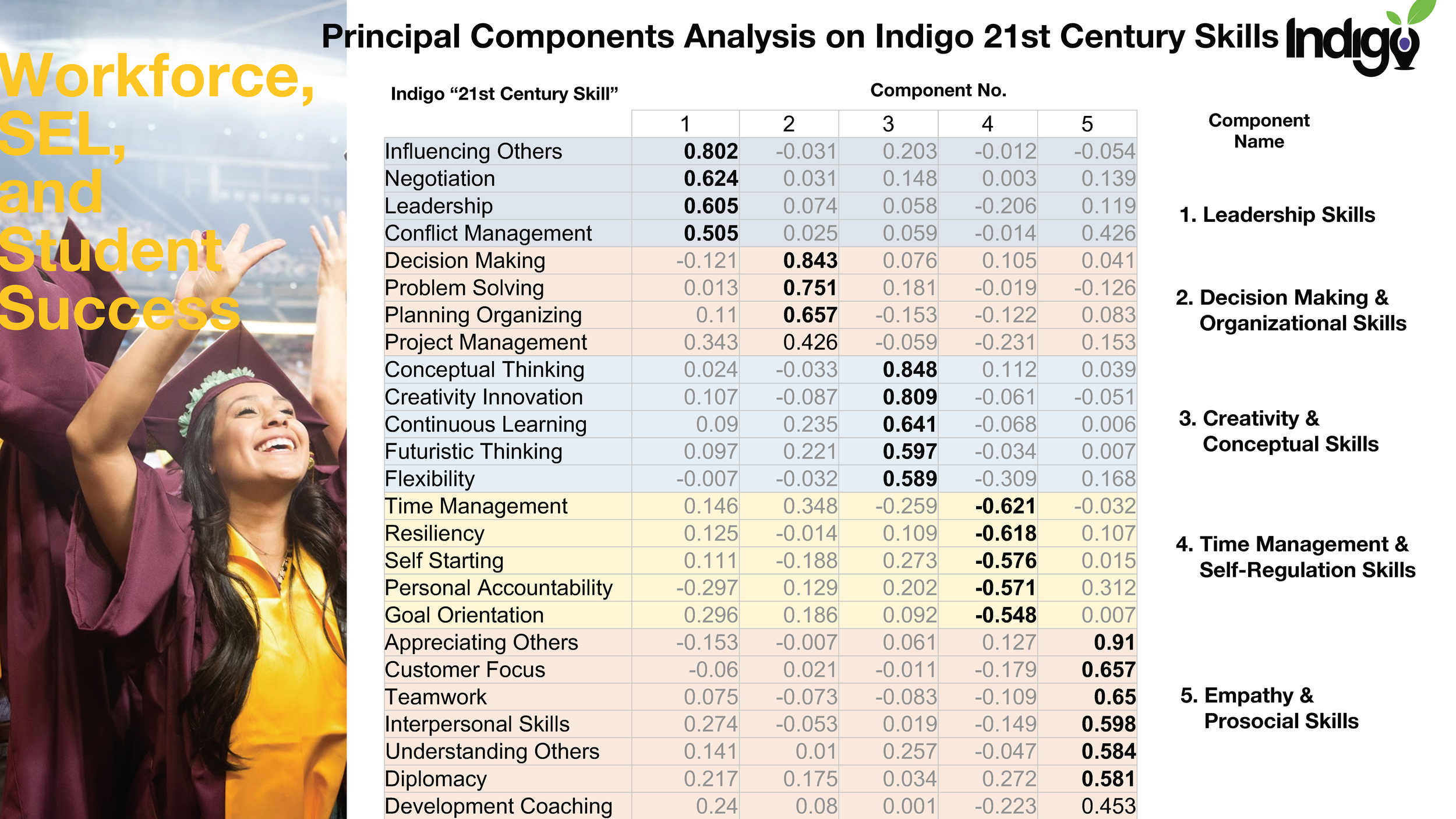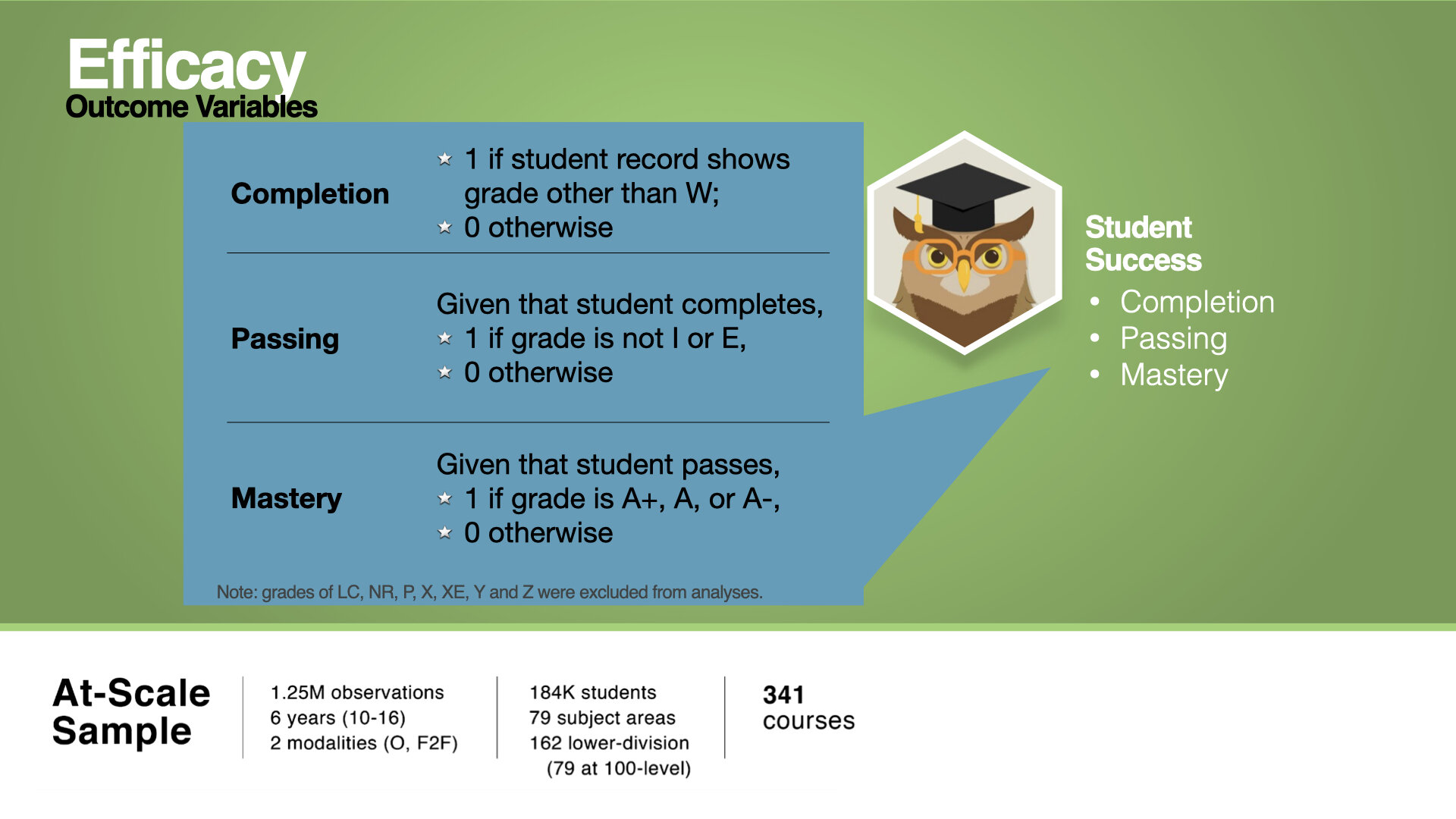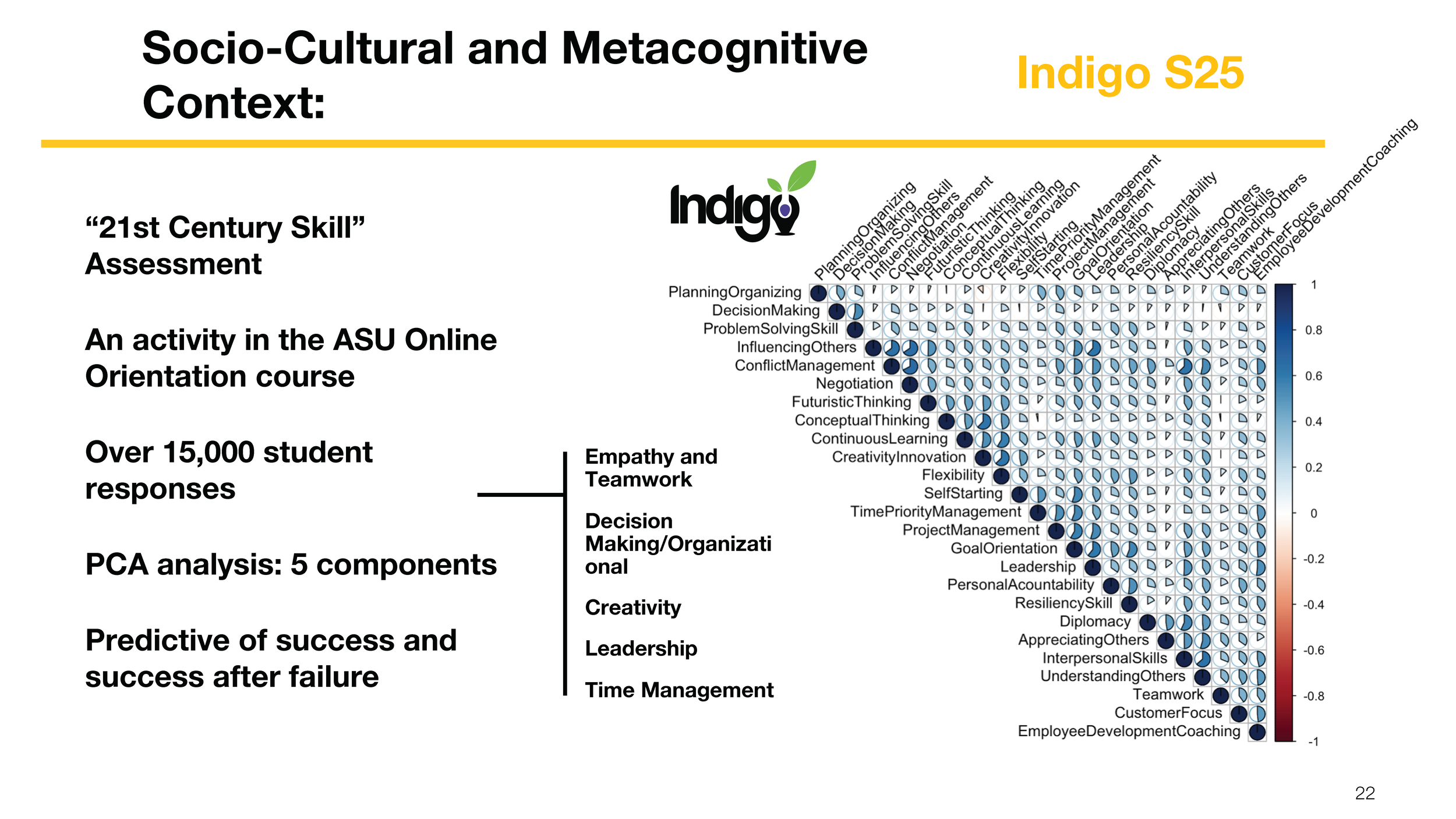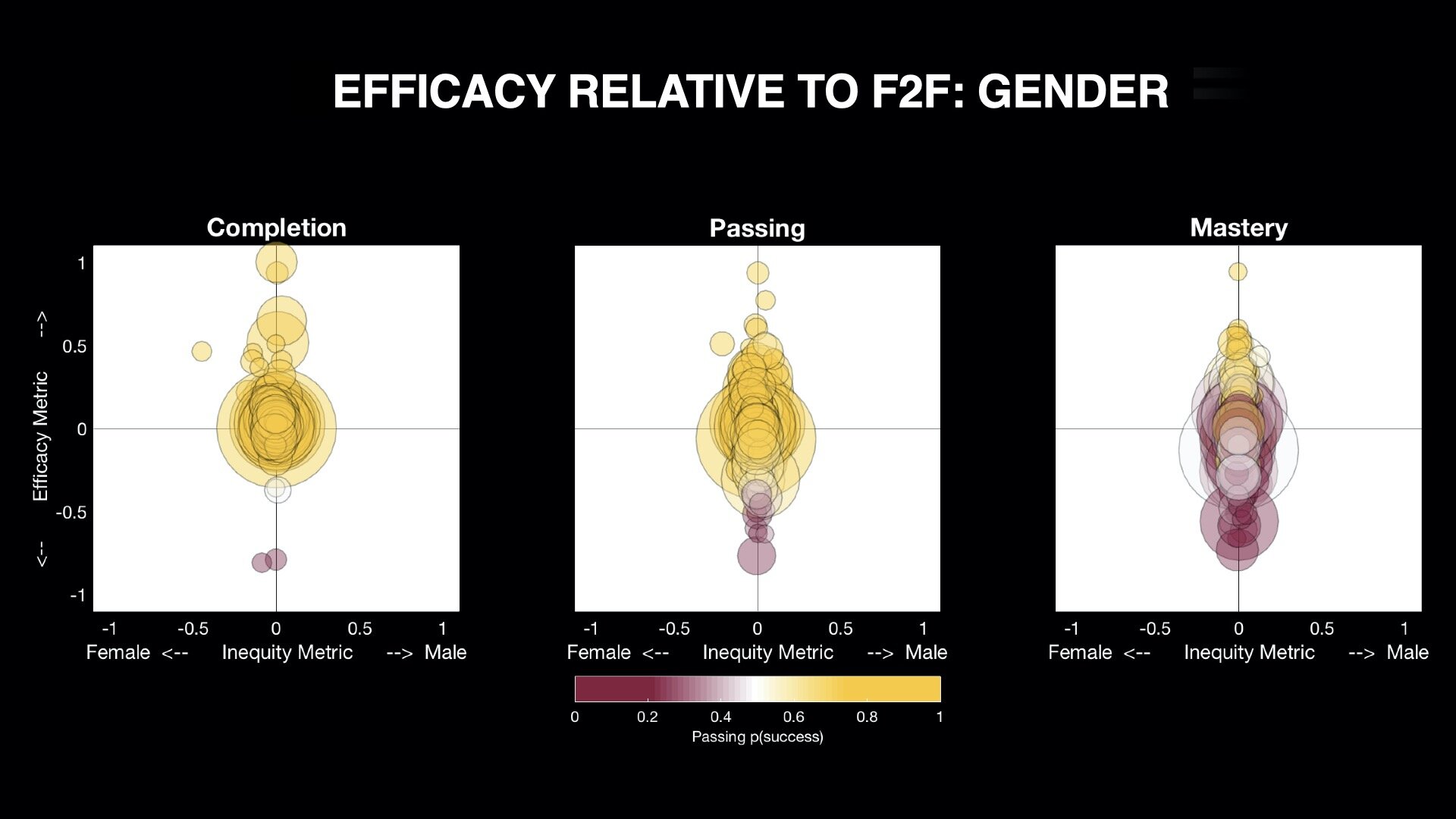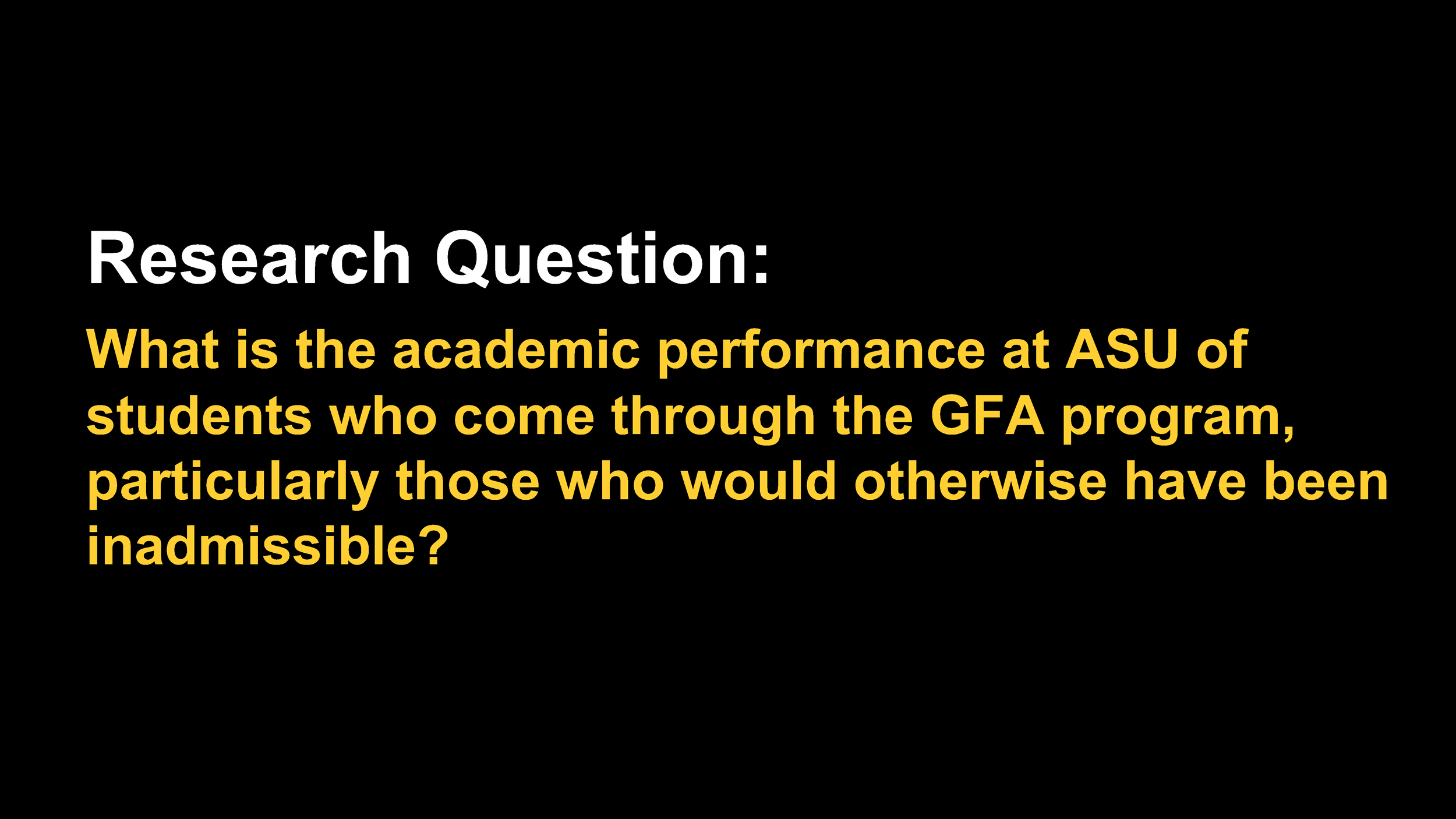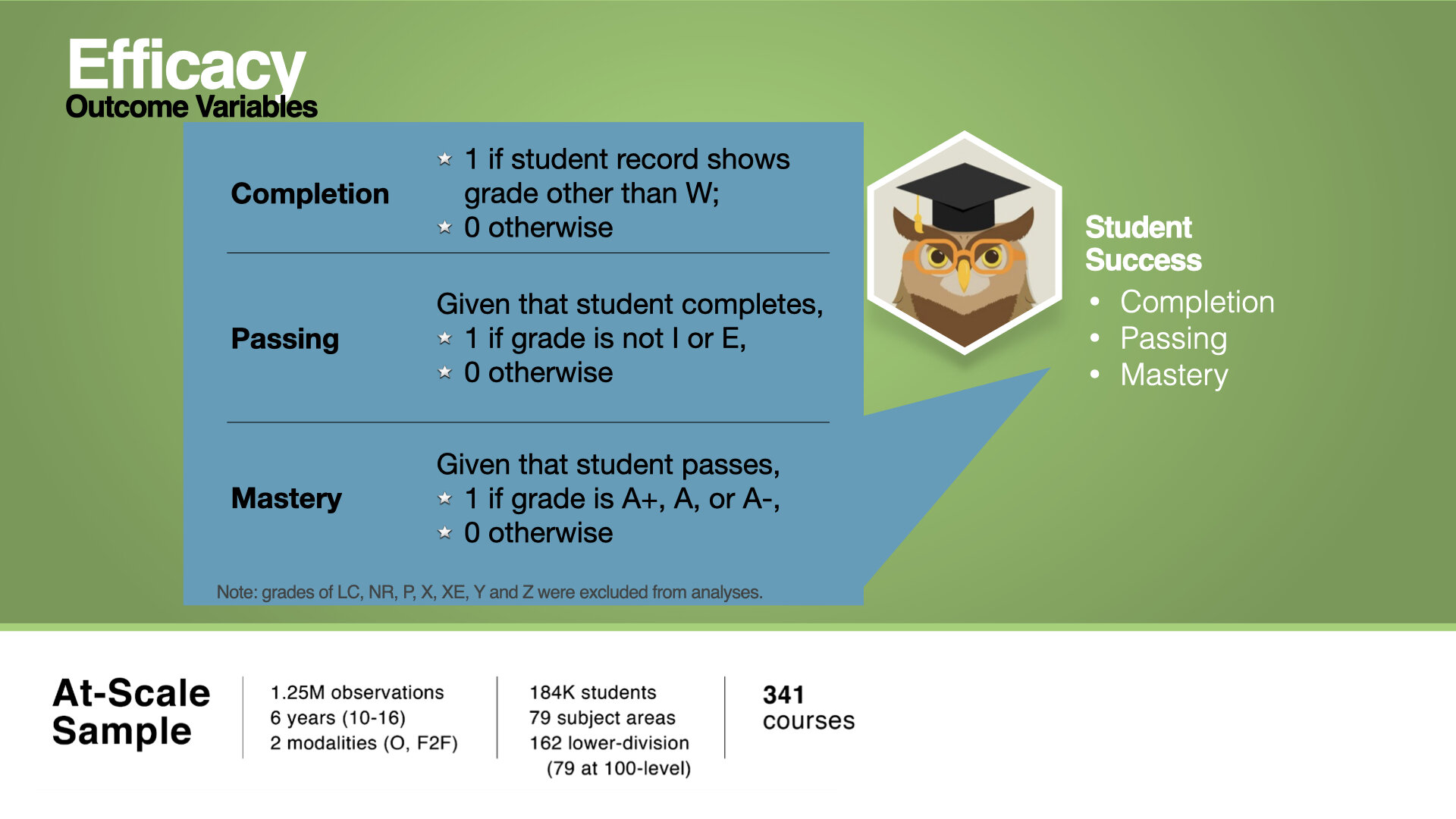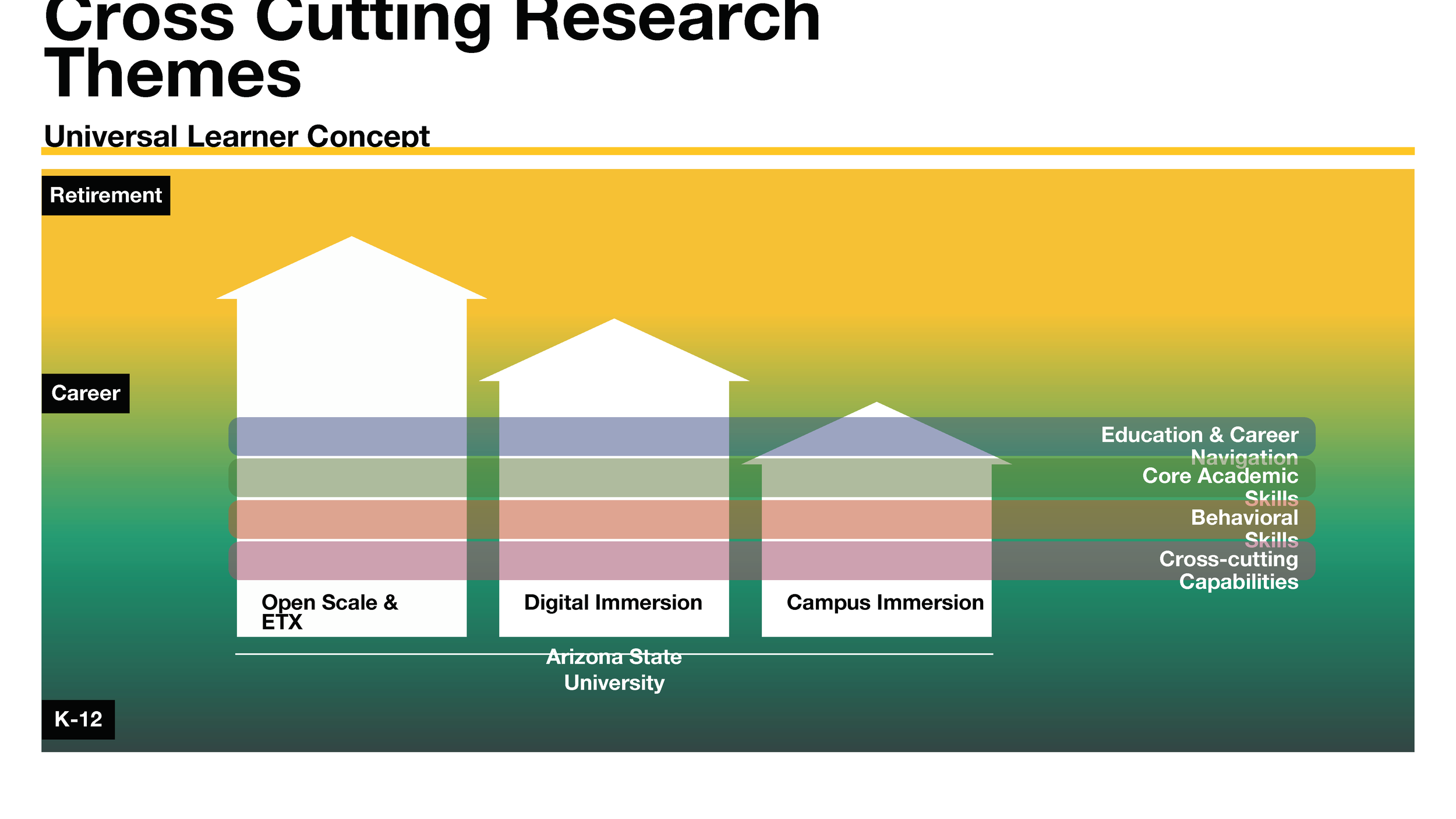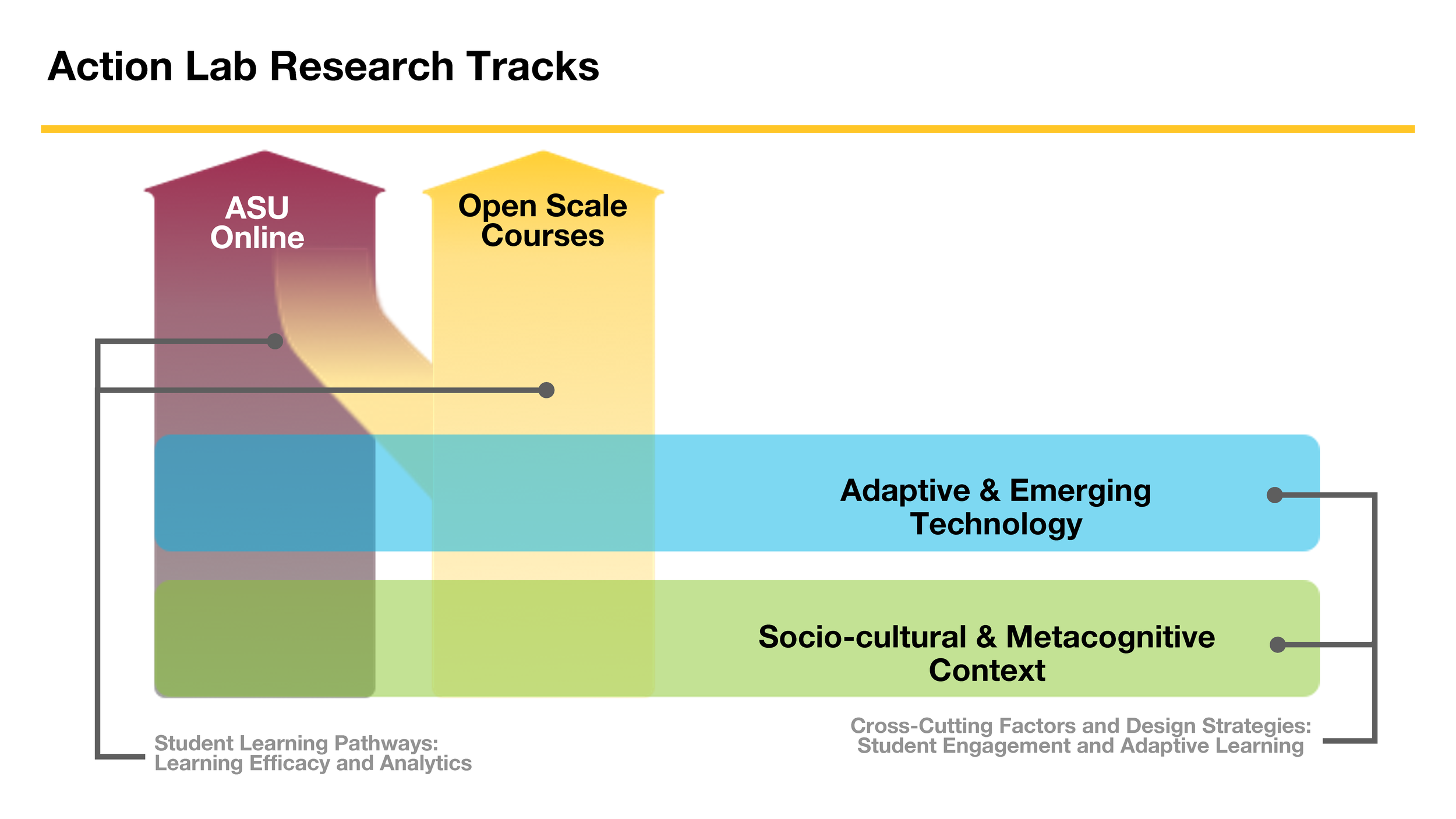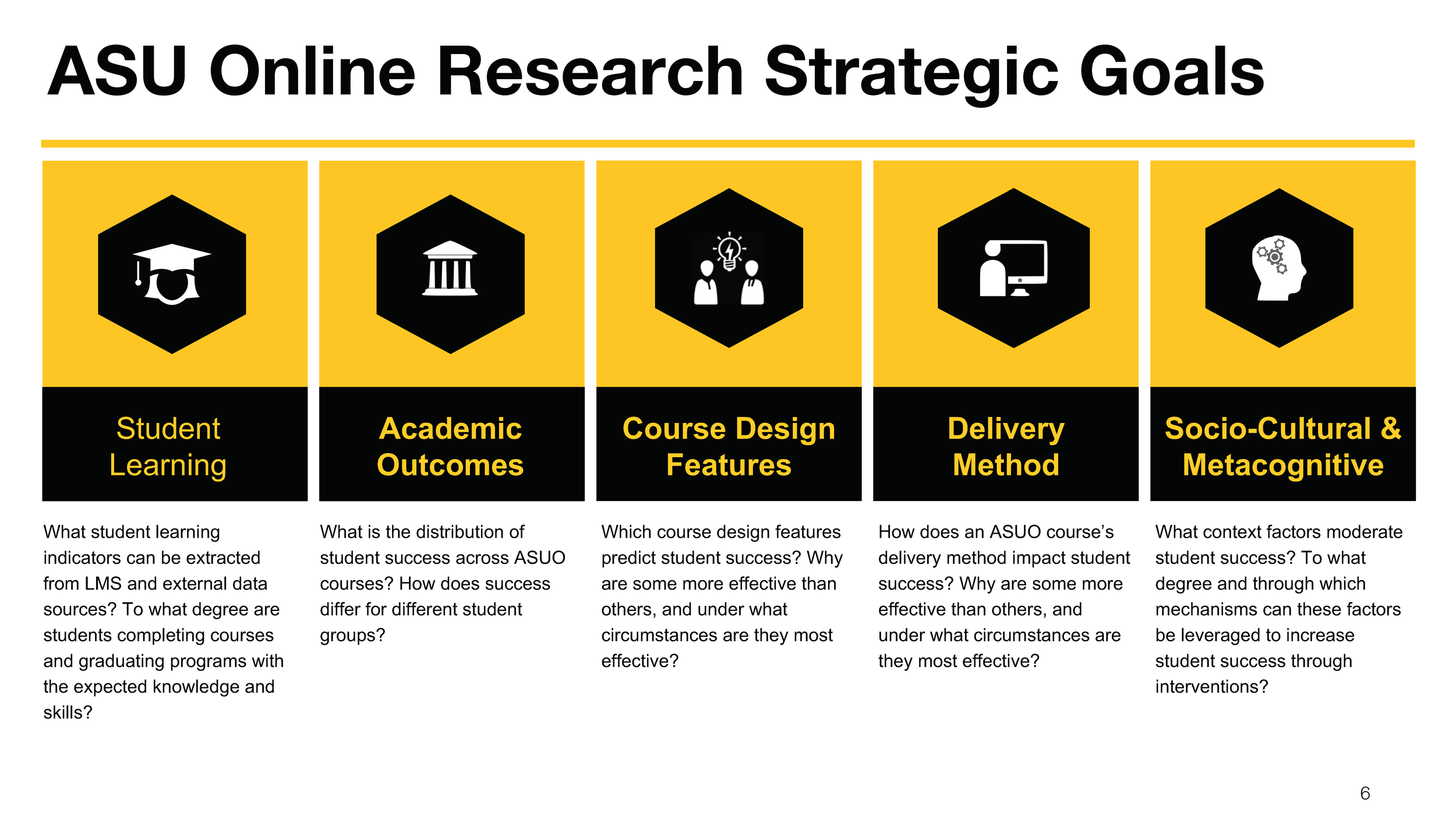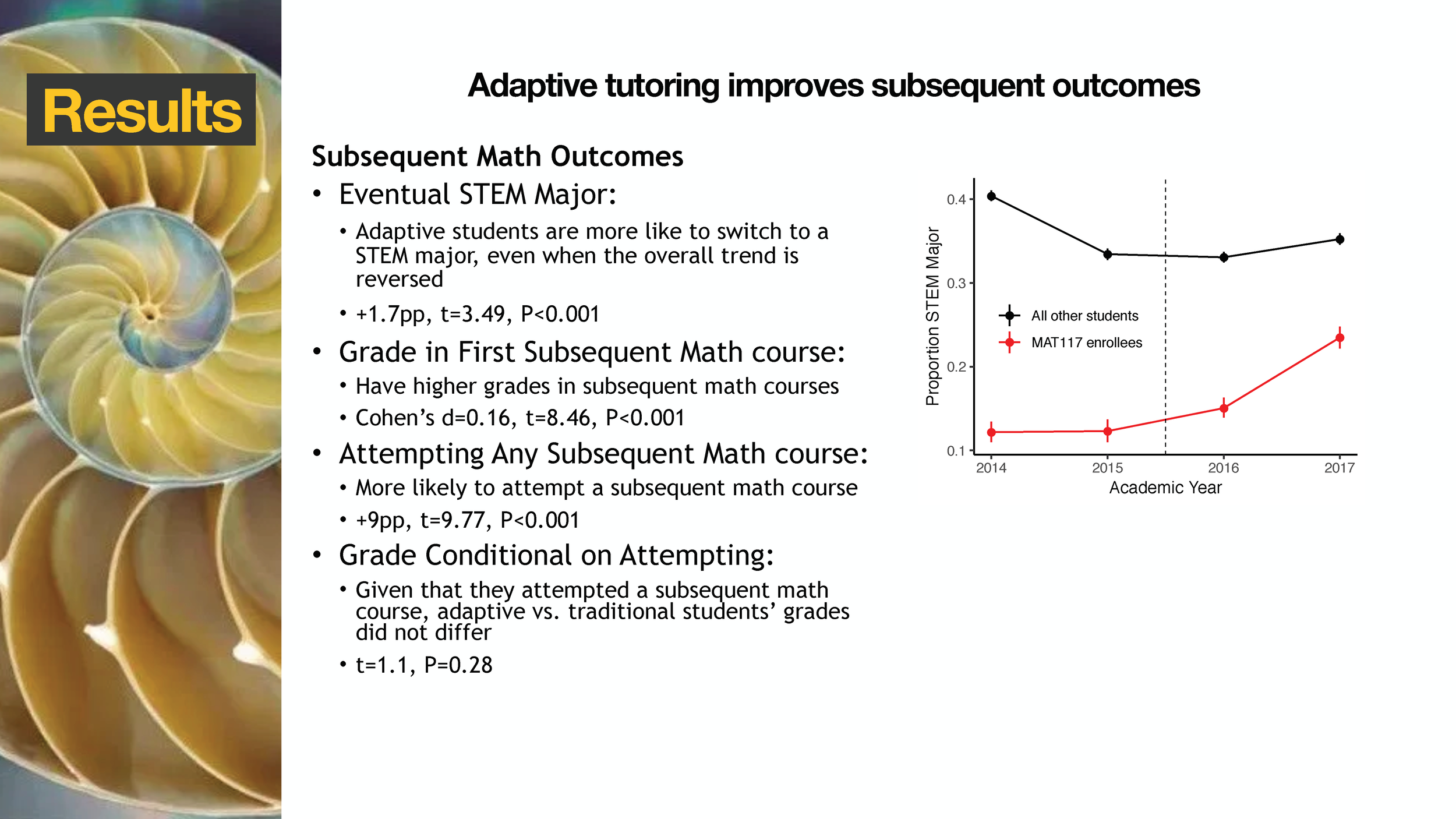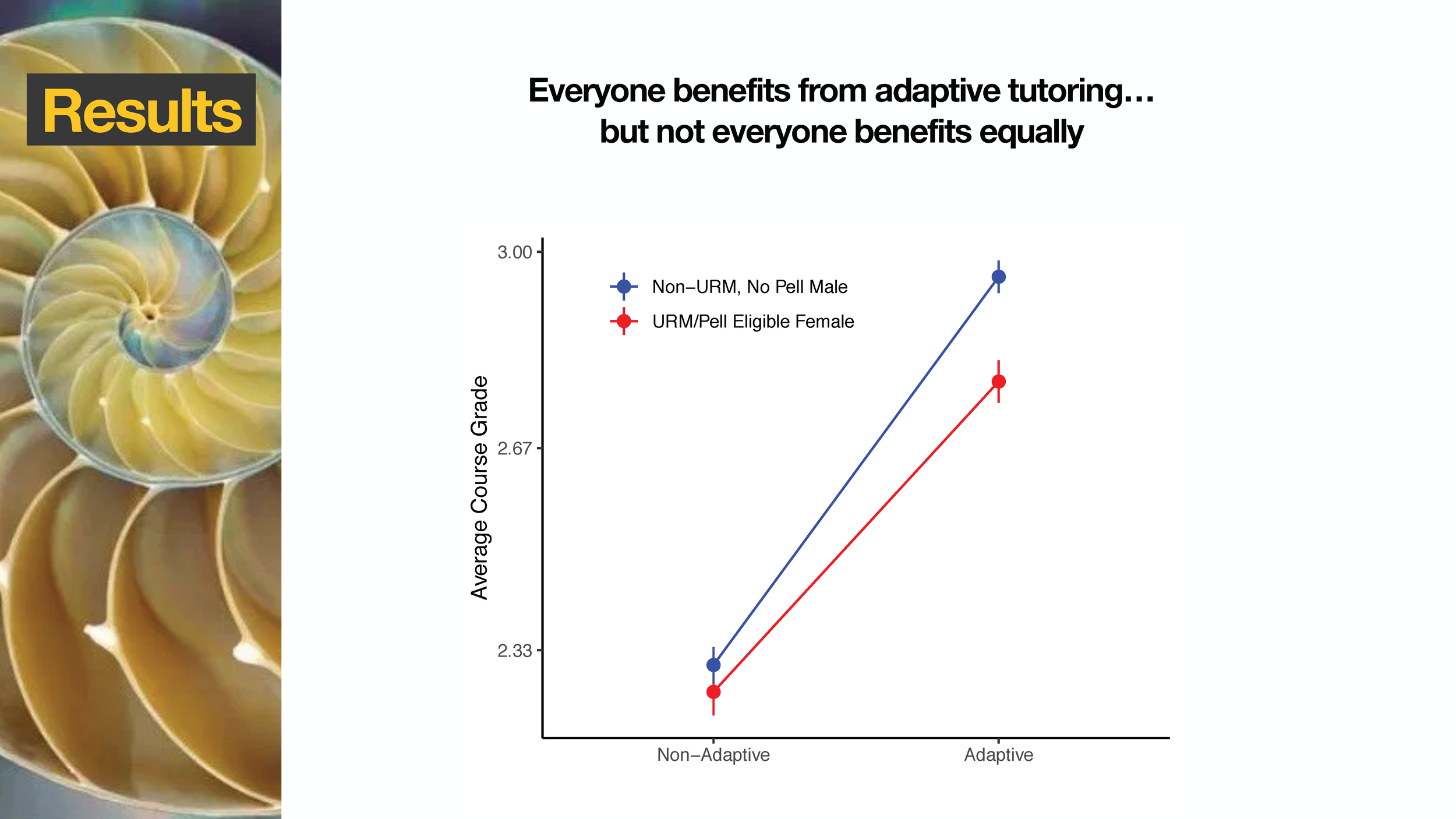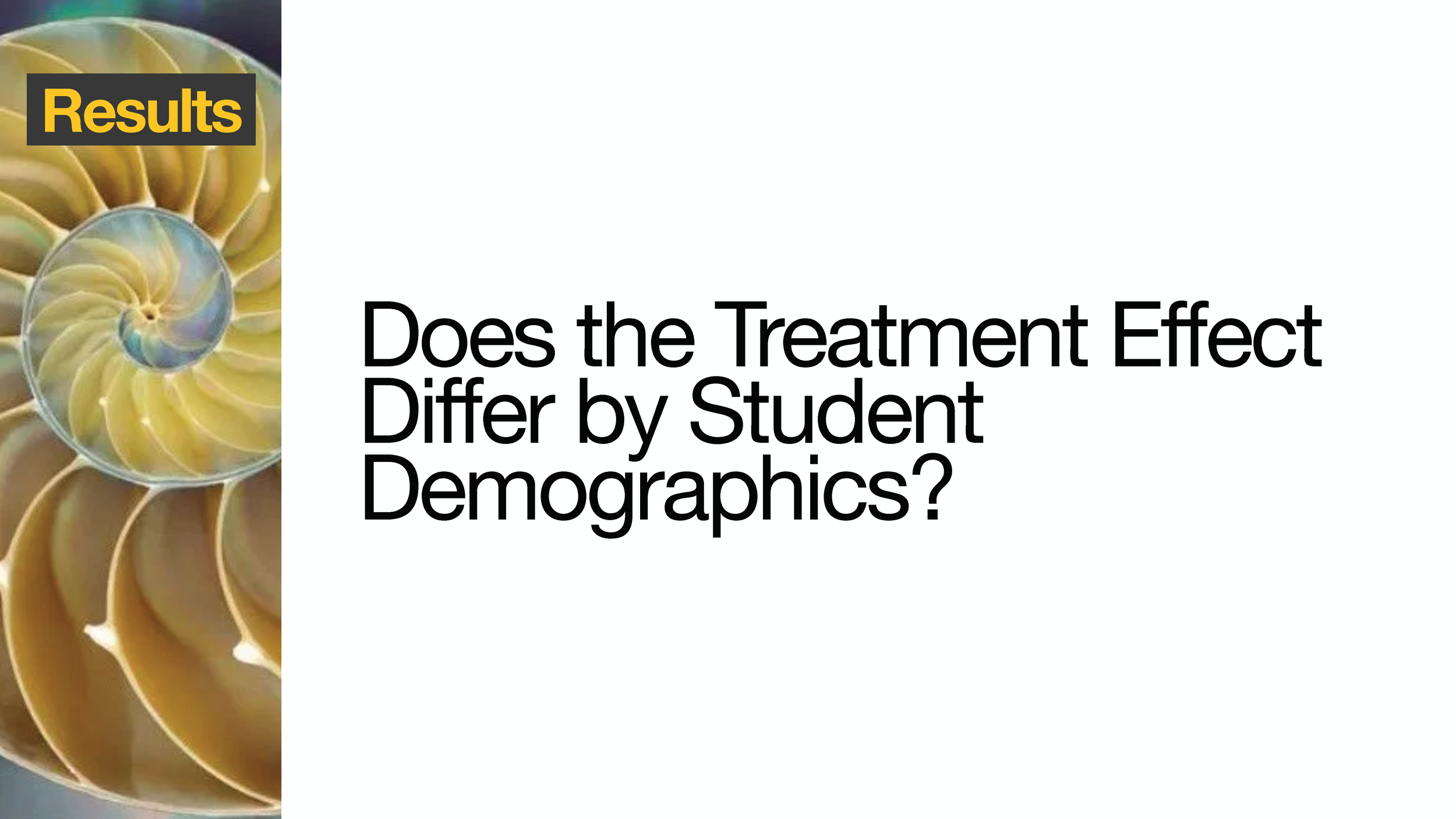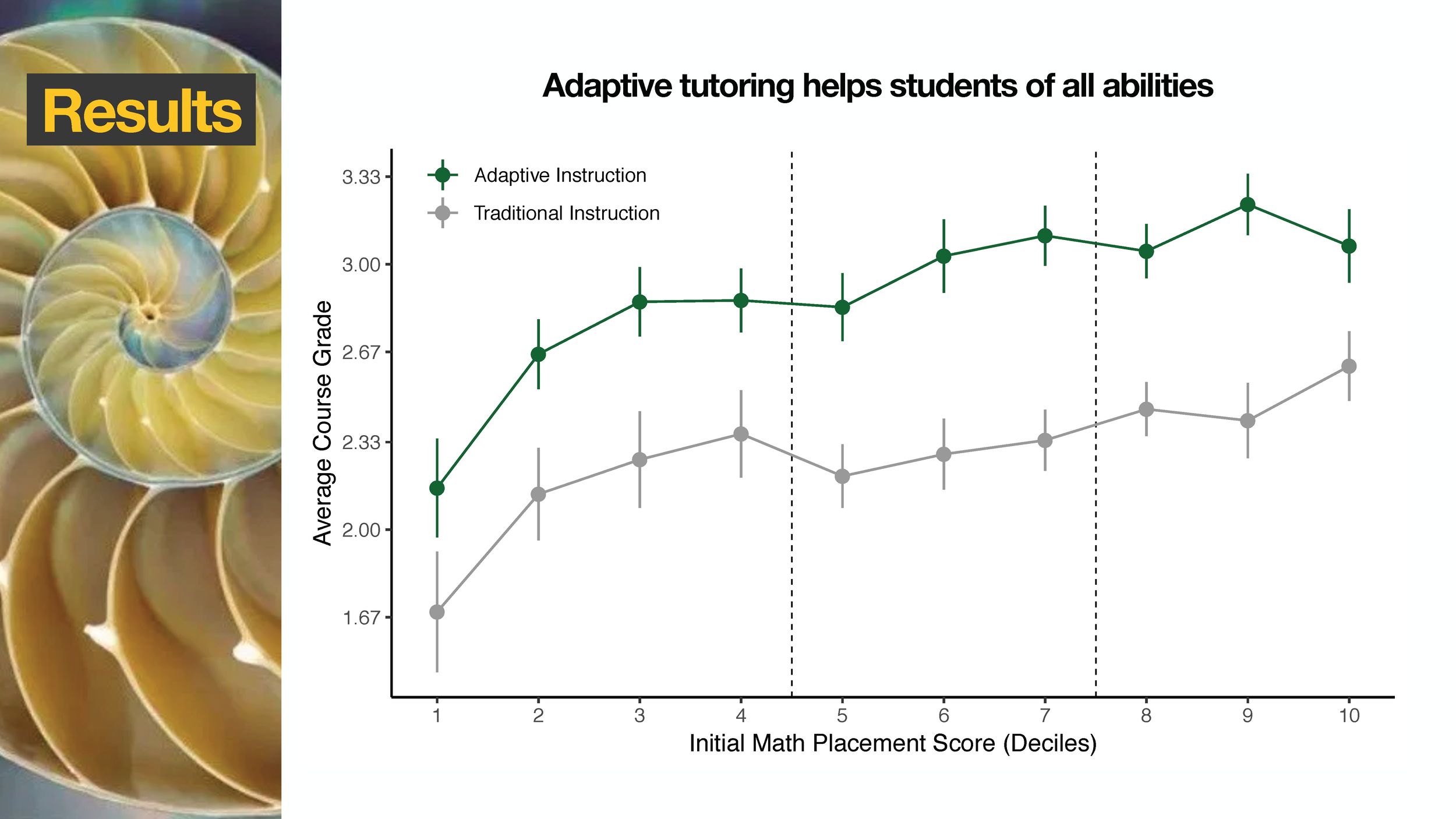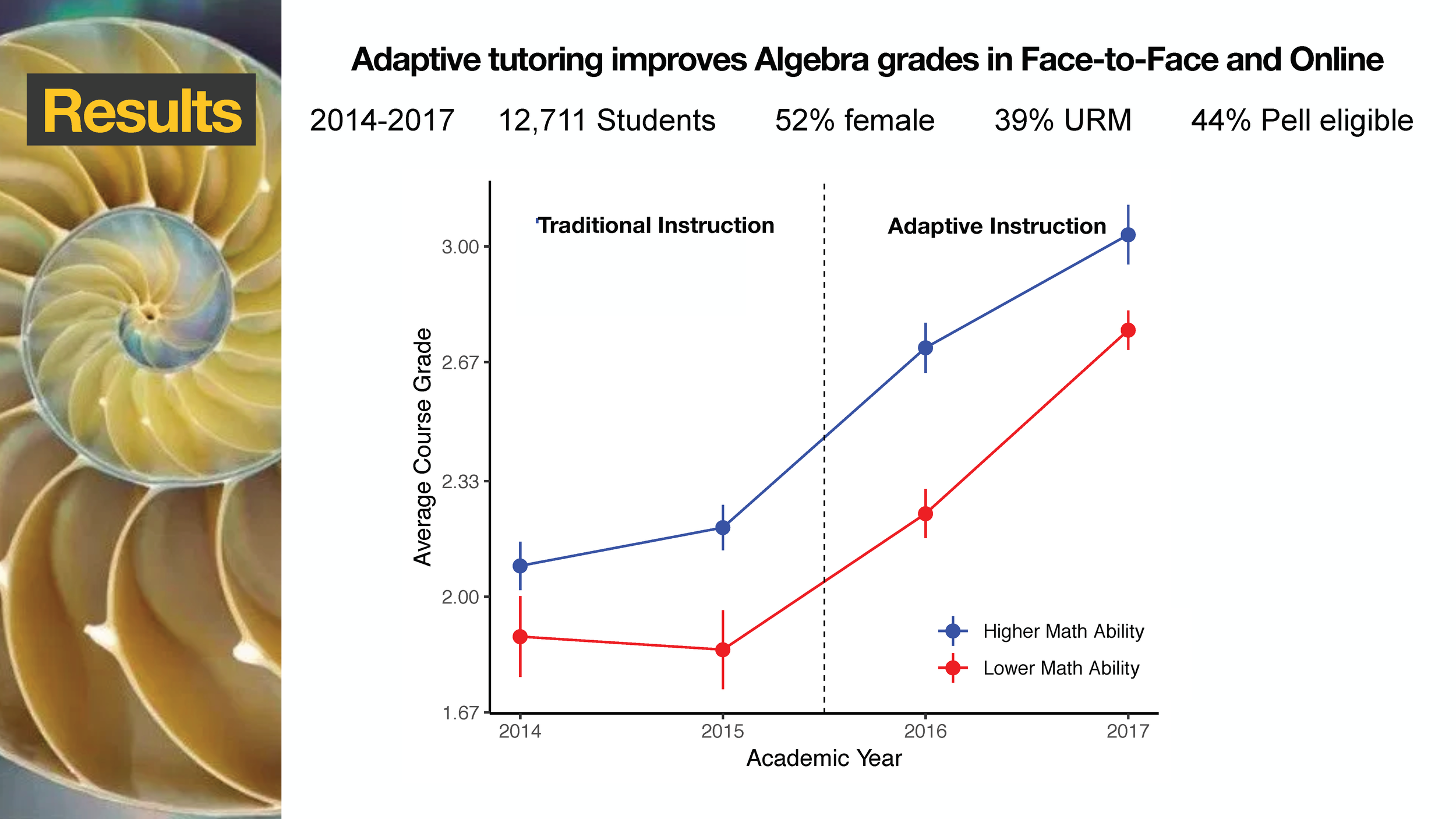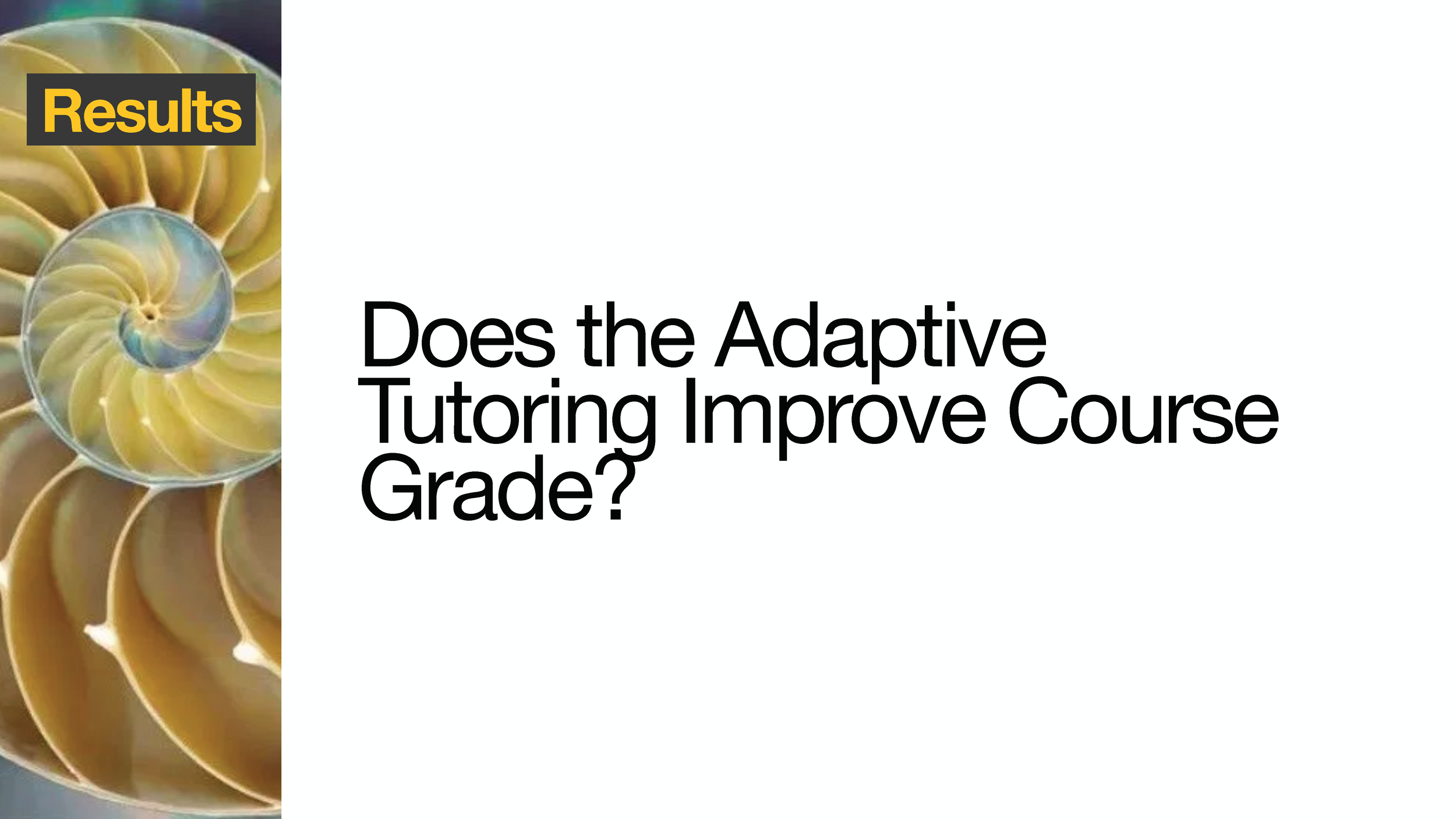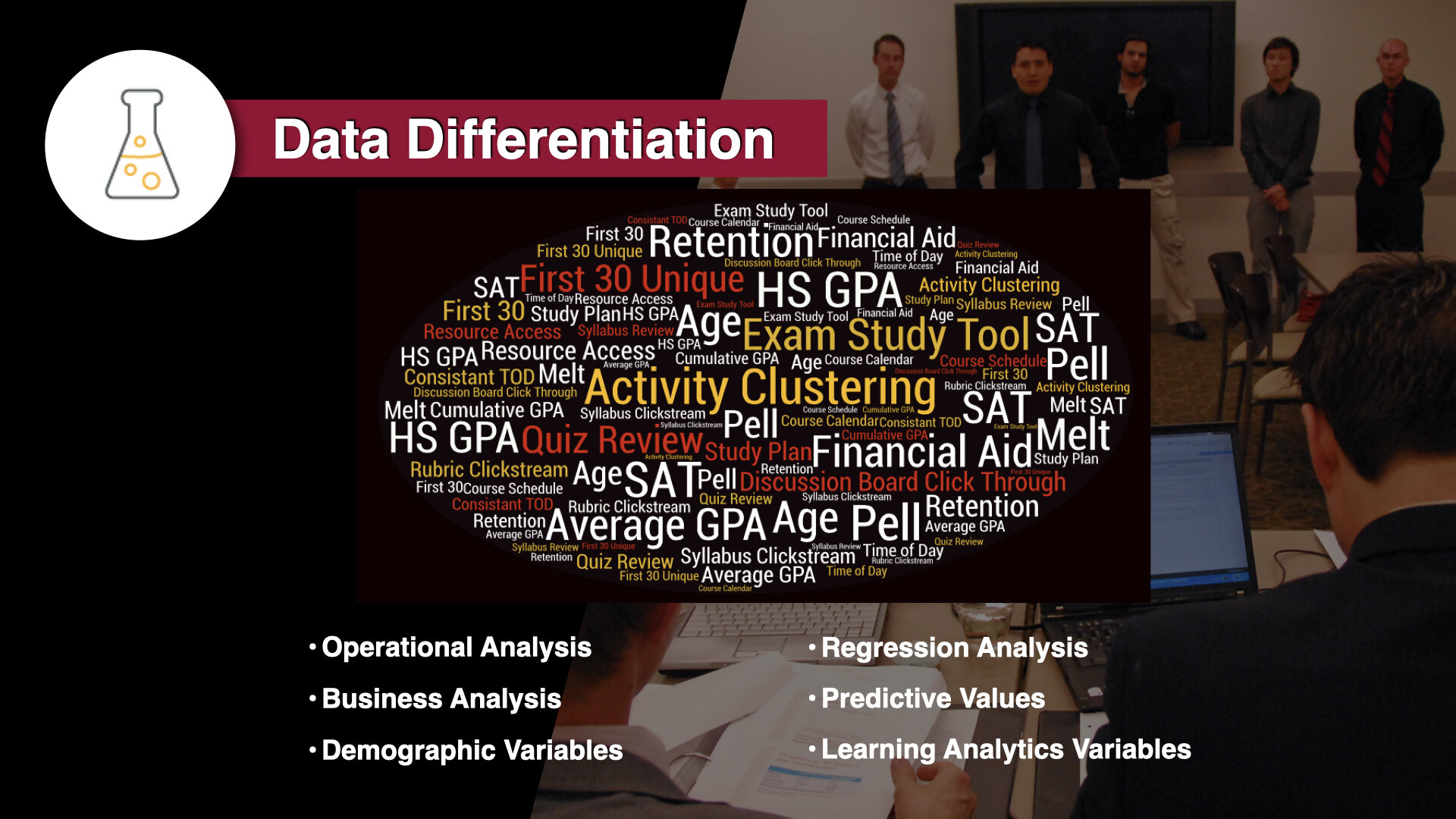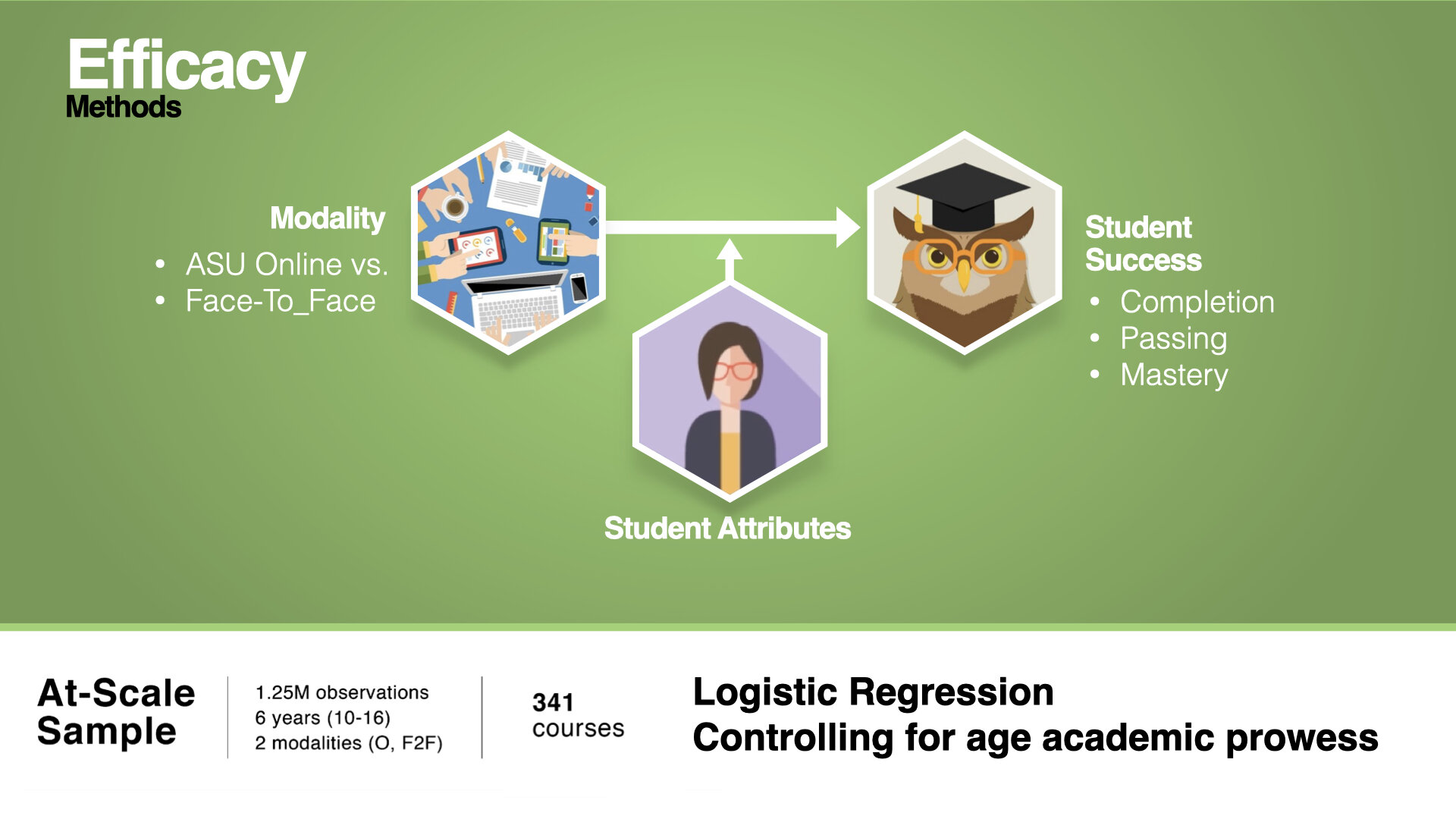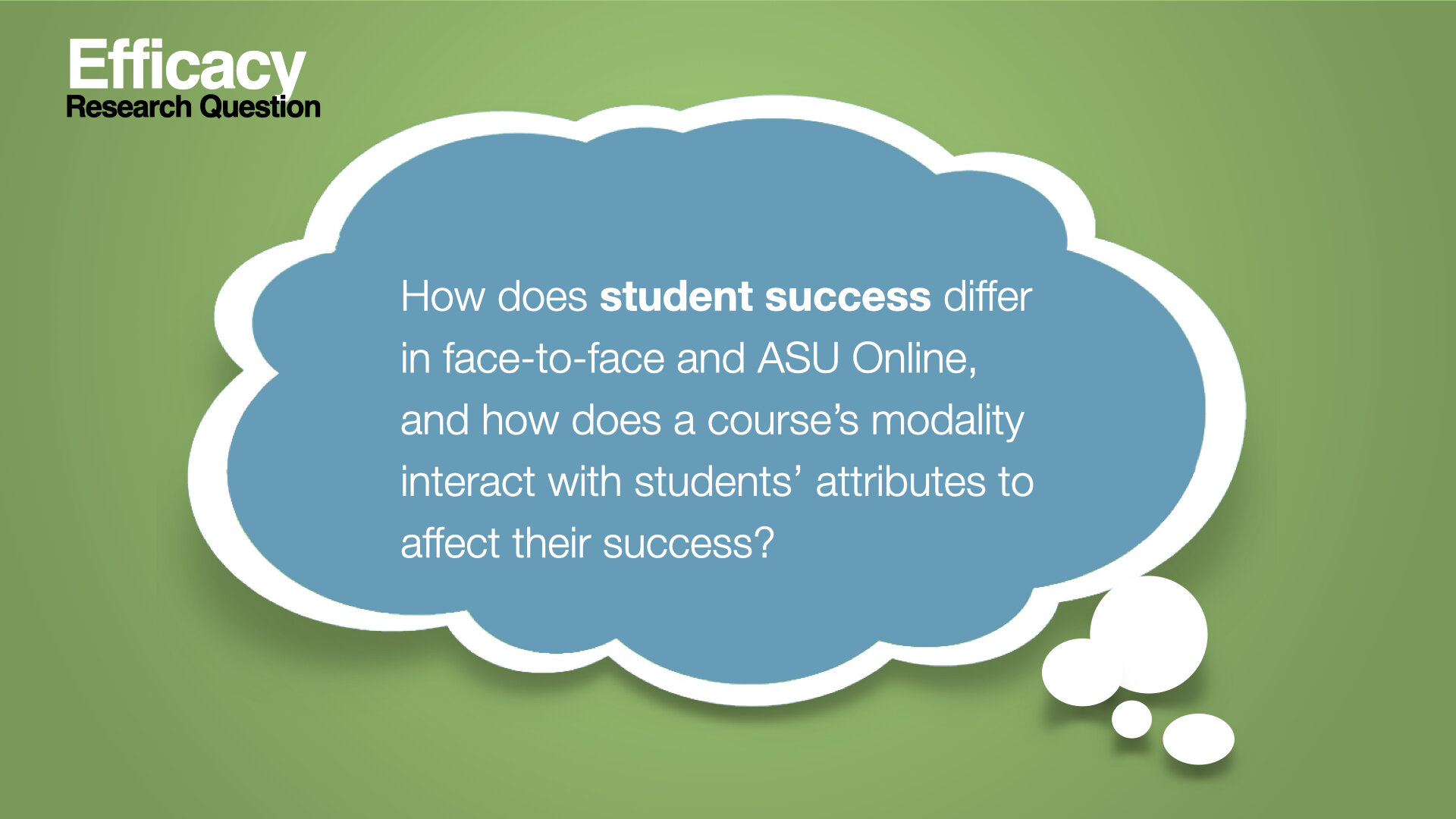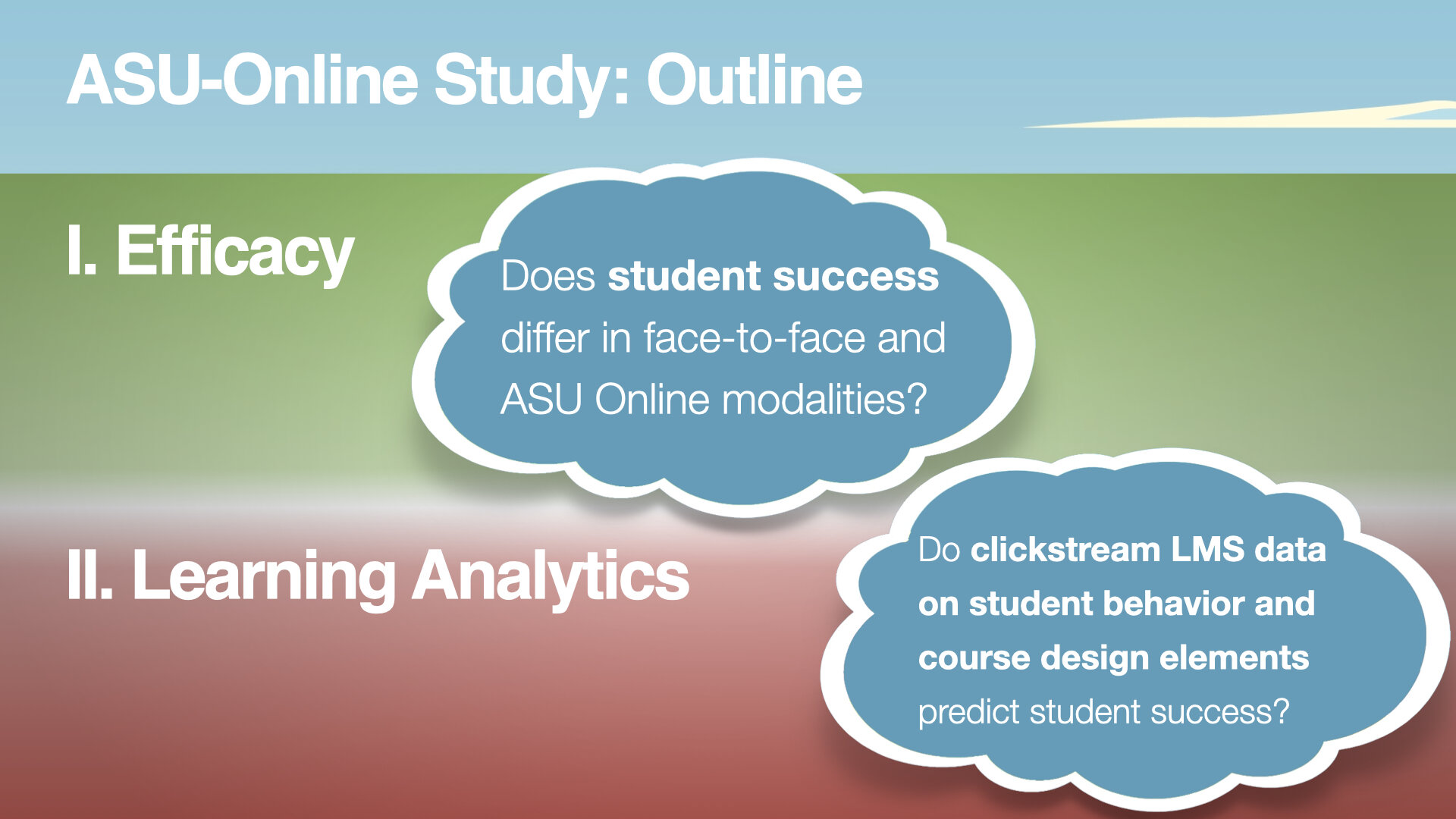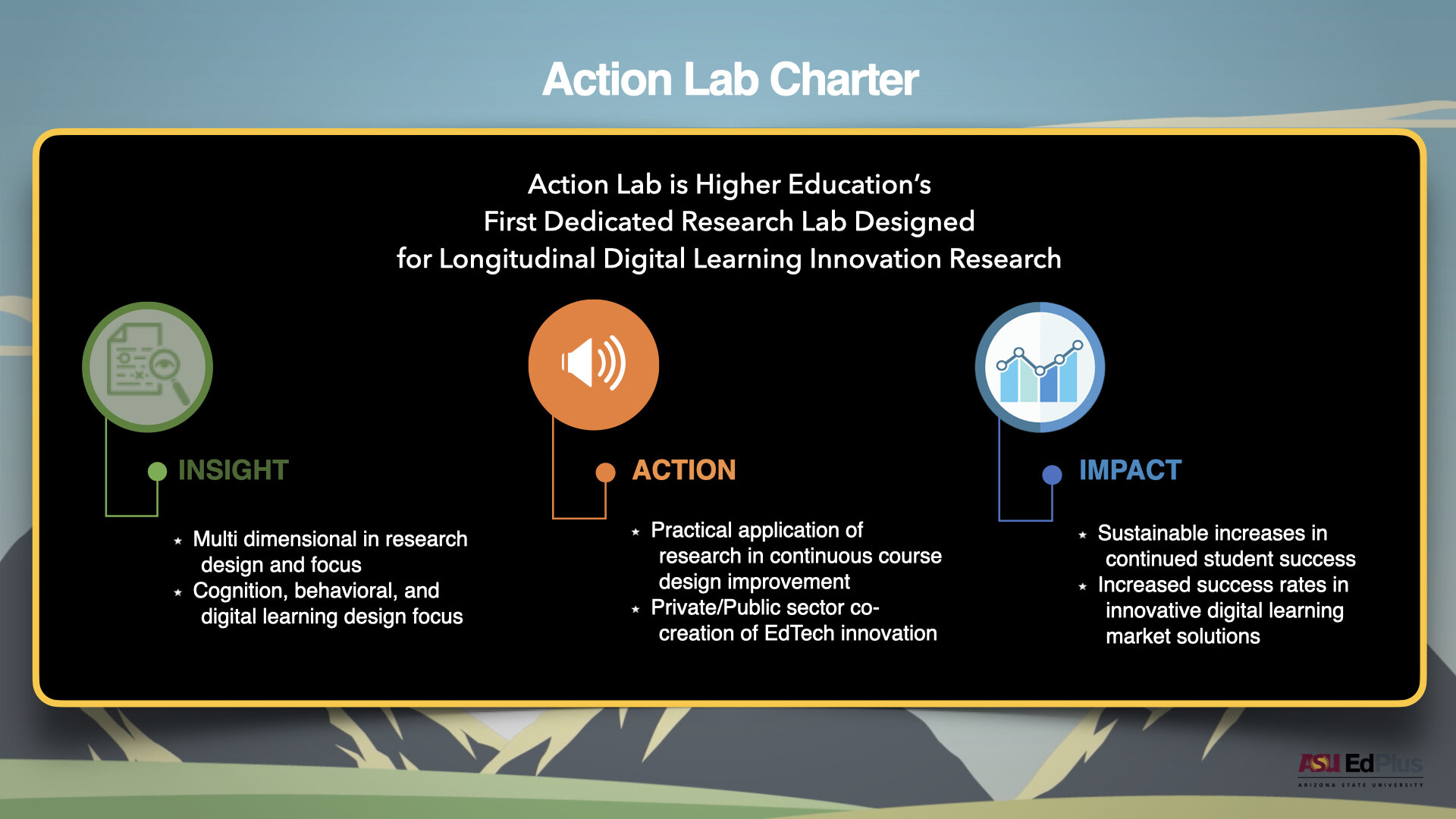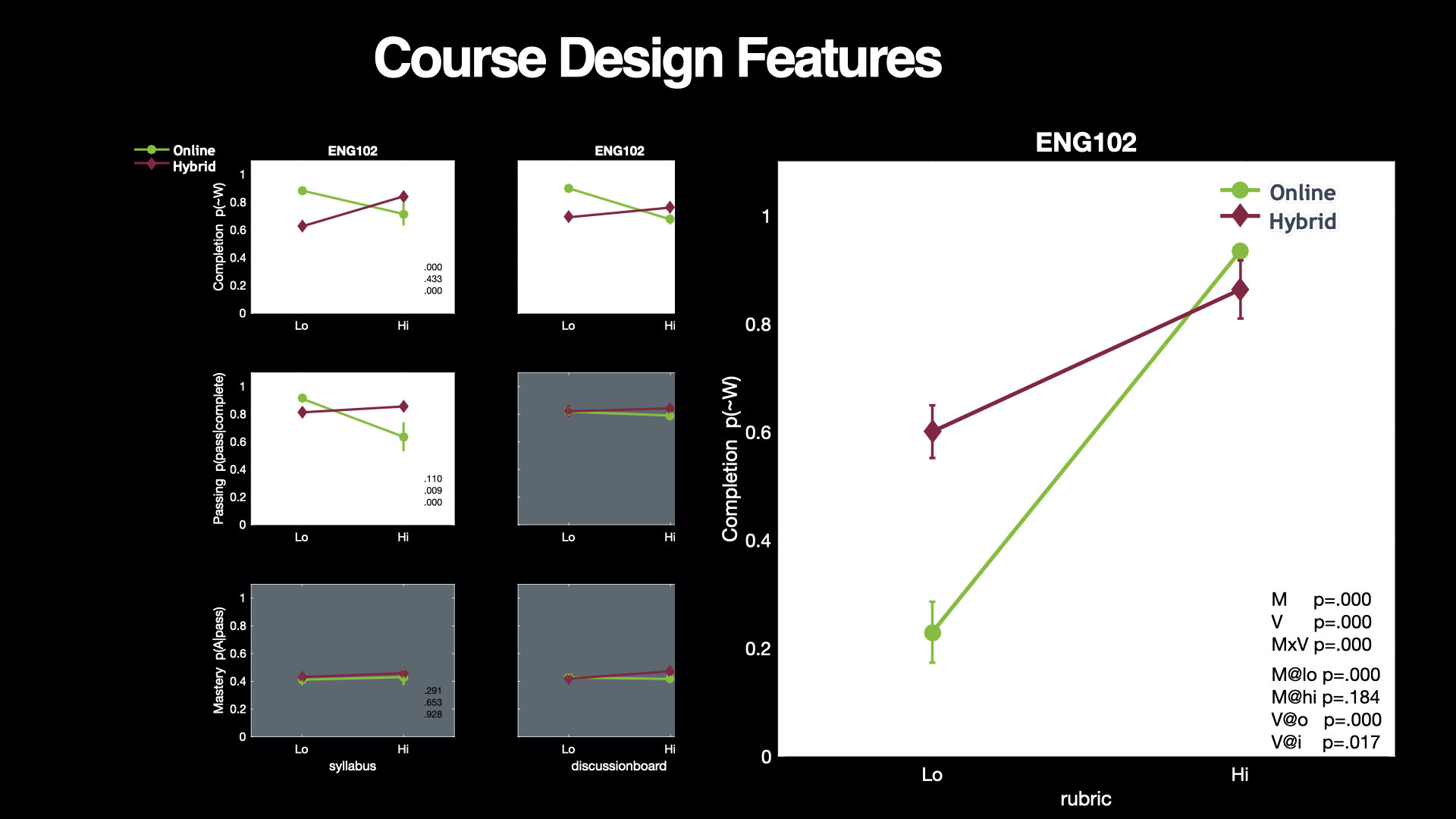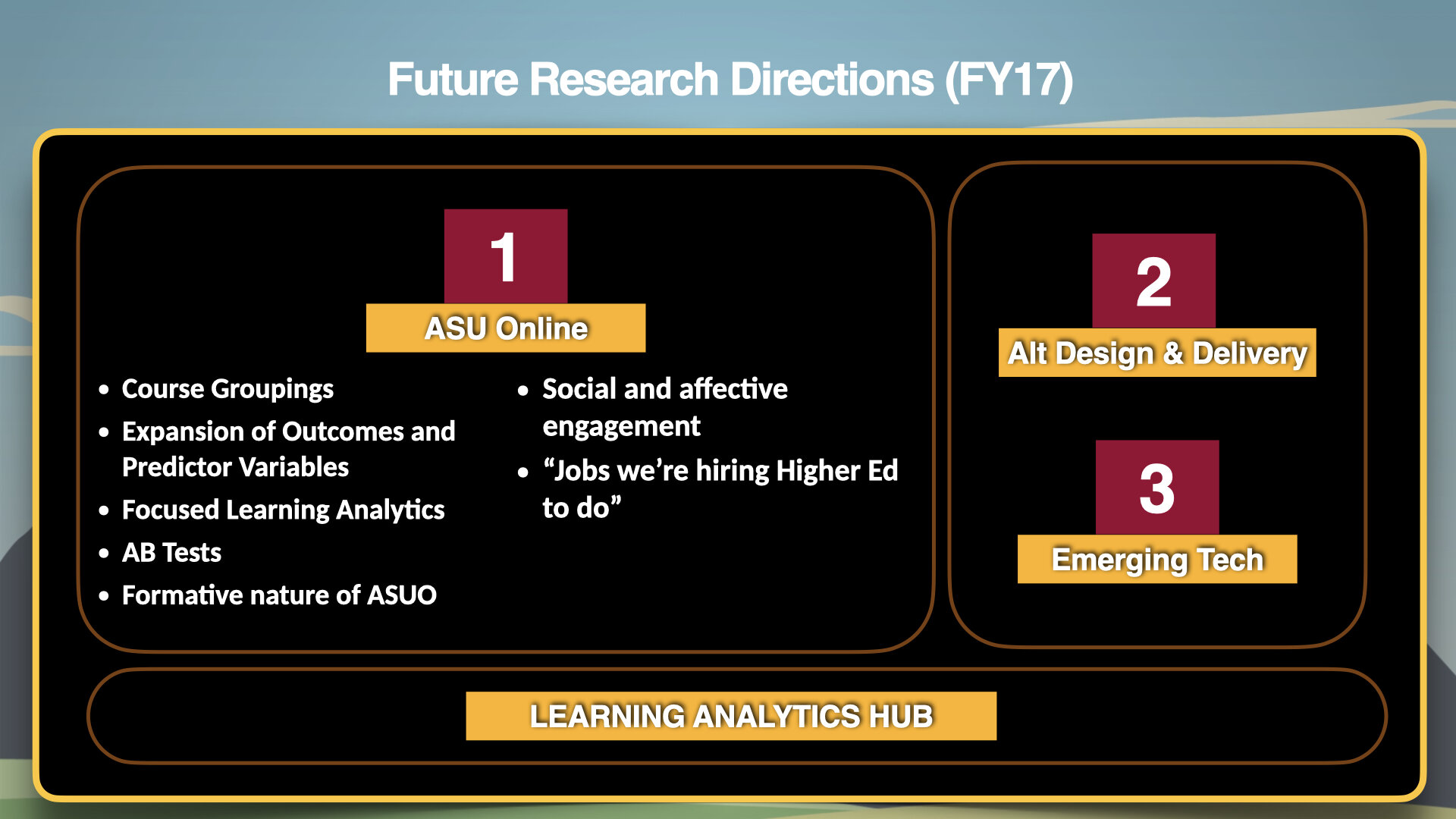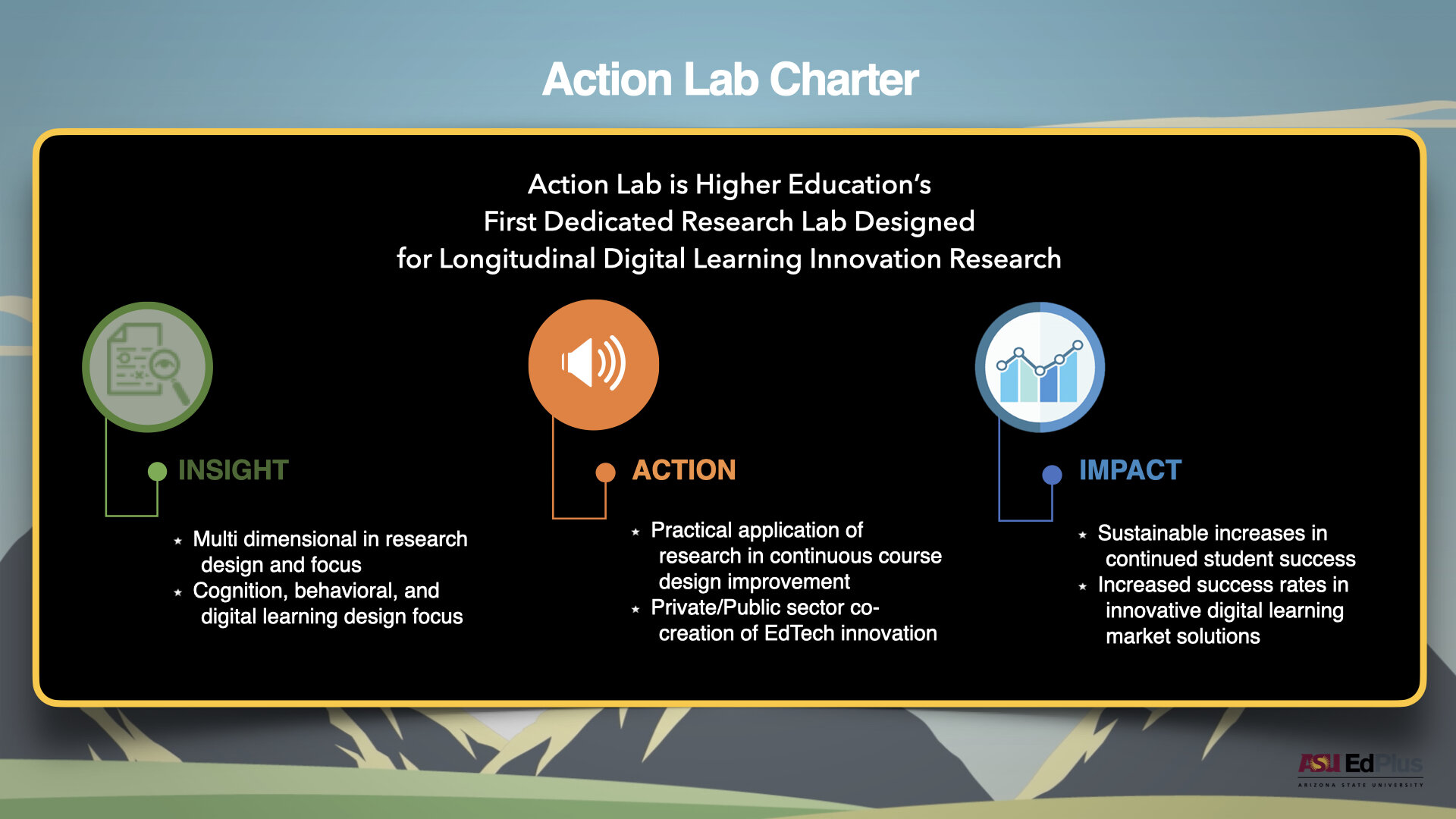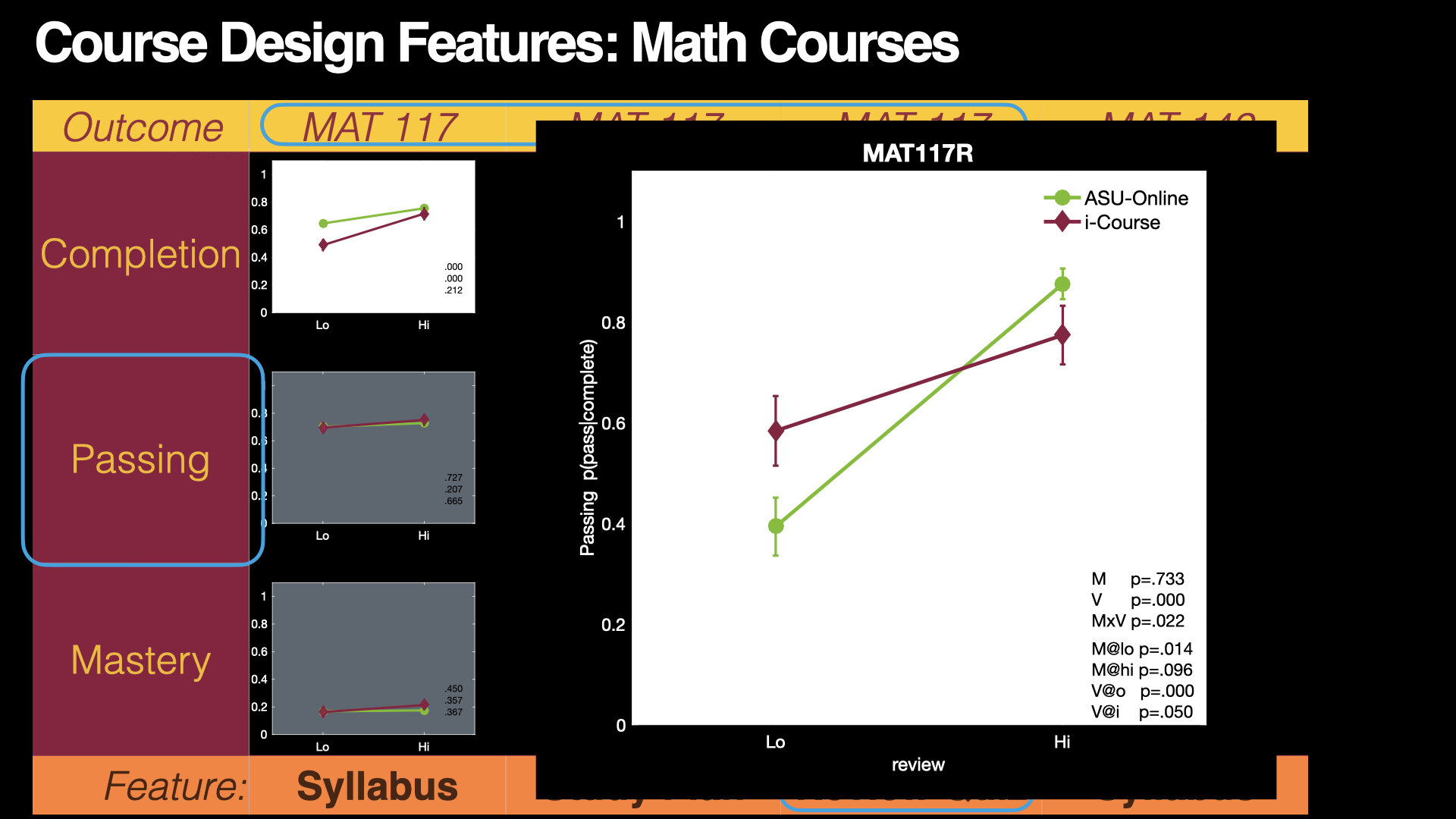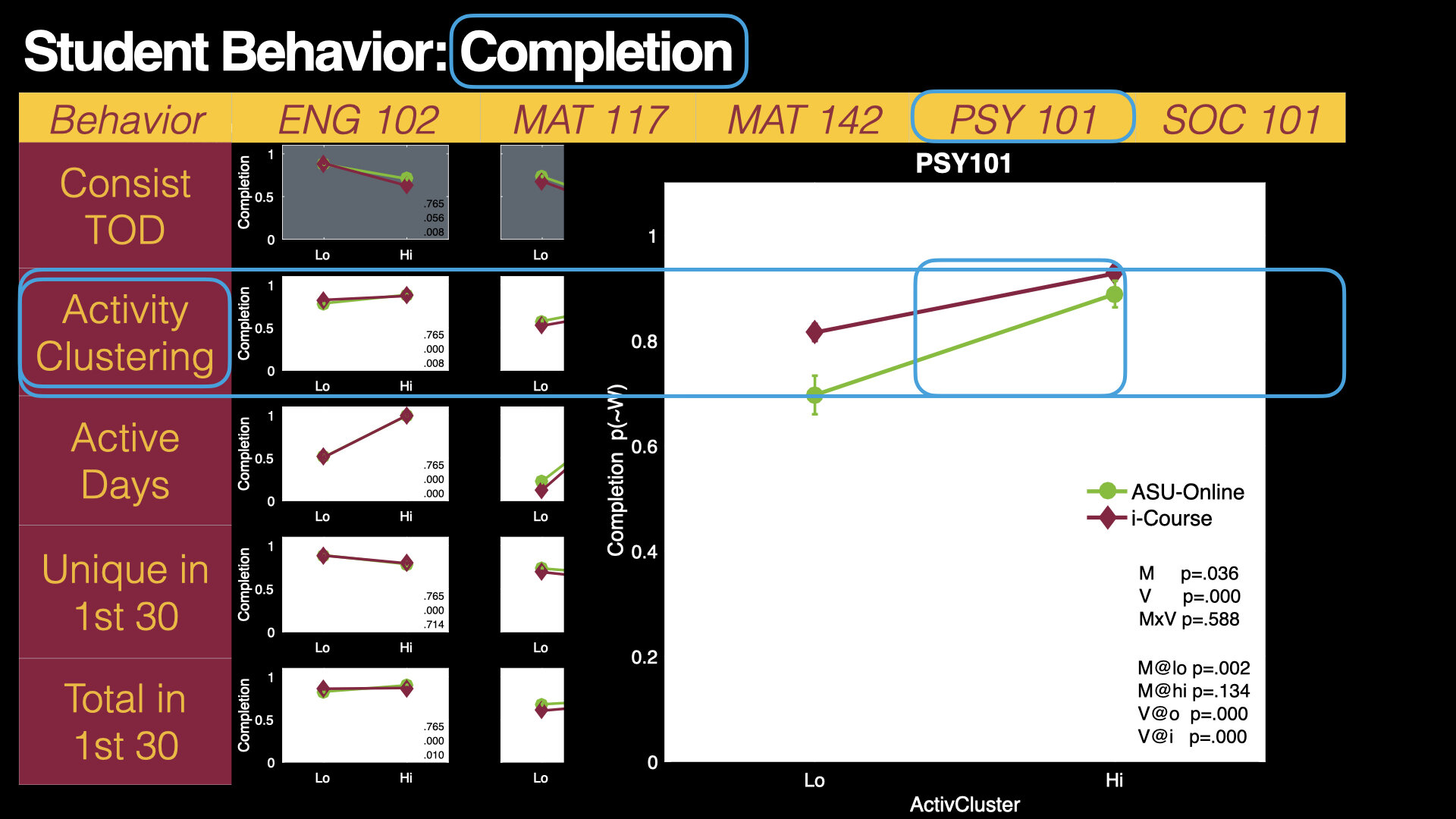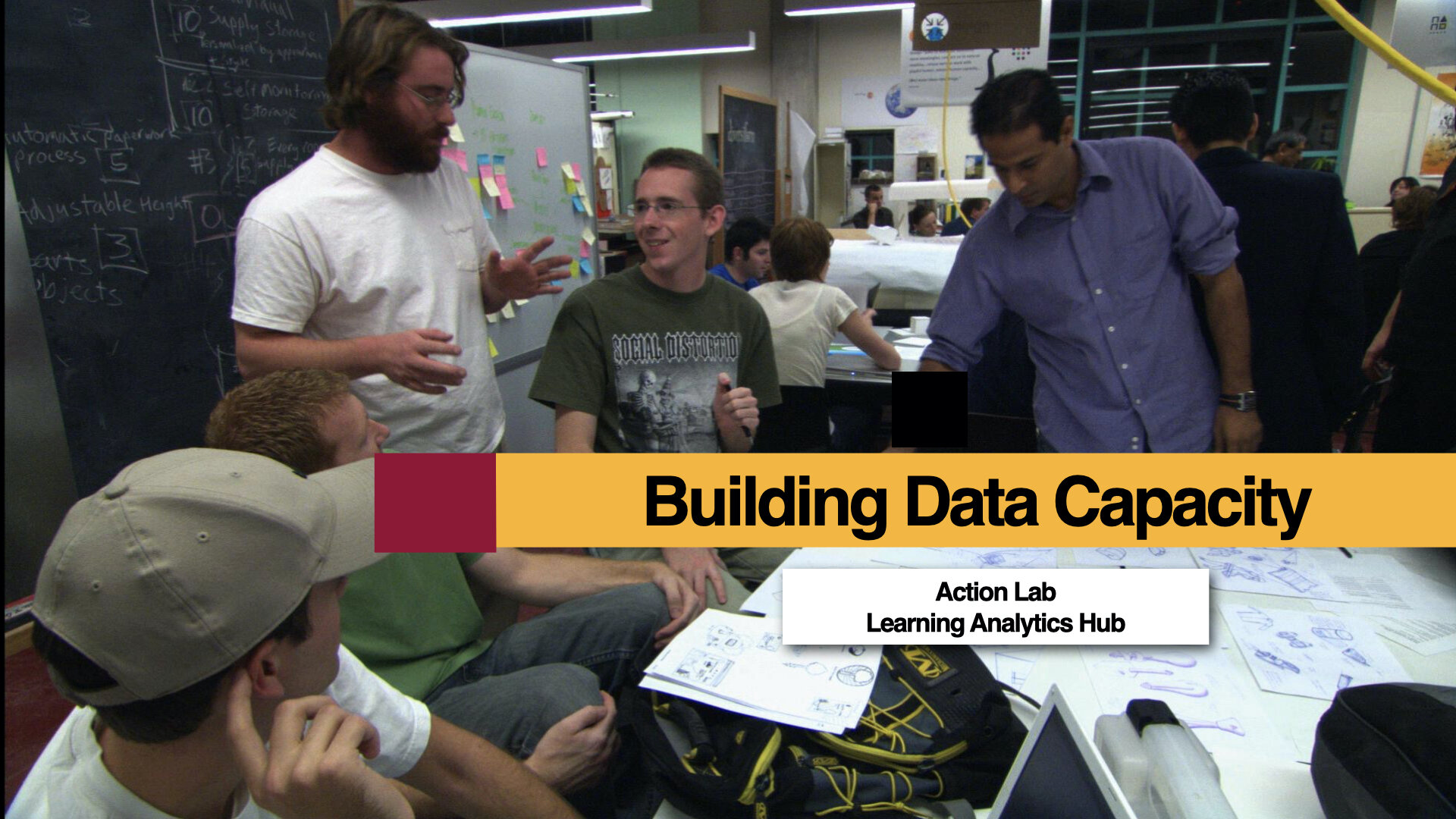
“Research should be applicable and practical in ways that result in continuous improvement in digital learning innovation.”
“What we are doing, given limited flexibility in learning management systems, is deconstructing these types of technologies and creating plug-ins and different ways to shape the learning experiences.”
The Action Lab is a dedicated teaching and learning laboratory within EdPlus that engages in deep research in digital teaching and learning science enabling continuous improvement in online programs which ultimately result in student success.
As Action Lab’s Managing Director and Senior Innovation Fellow, I apply my expertise to lead ASU’s efforts to understand, advocate, execute and implement new solutions to enhance the digital learning environment.
Learn more about the Action Lab →
APPROACH
The Action Lab’s work is grounded in the belief that success in educating and graduating workforce-ready students, requires reimagining the student digital service experience and determining how technology can facilitate that success.
The Action Lab employs an evidence centered design approach providing actionable data and information that results in continuous improvement of ASU’s leading online education programs.
We invested in an in-house team of design experts and only out-sourced two aspects of the program to third parties, noting Pearson provides student acquisition support, while Blackboard provides the learning management system.
One key driver of success has been investment in data analytics. Our team of researchers at ActionLab work closely with the digital design team to study what students engage with and what can be improved through instructional design modality.
Findings & Observations from the Gates Foundation Research Project
Four key take-aways from our research on scaling a digital learning model:
1. Take a strategic portfolio approach to digital learning;
2. Build capabilities and expertise to design for quality in the digital realm;
3. Provide the differential student support to succeed in fully online learning; and
4. Engage faculty as true partners, equipping them for success.
I’ve observed a dramatic shift in the way formal digital courses are being applied. Fifteen years ago, most courses were designed and directed at contained groups of undergraduates, but now the majority of students are nontraditional. Today’s “typical kind of education consumer ... is a person who's got a job, [or] they're trying to earn their degree to get a job. Many of them have families and they learn in discrete units or chunks of time. They're not linear processes–start here and end here. So that behavior is very, very different.” - excerpted from The Atlantic
“The whole environment of informal education, whether it’s MOOCs [Massive Online Open Courses] or whether it’s access to free education online or learning a particular skill or being involved in some sort of education program, has certainly increased the awareness for access through digital.”
